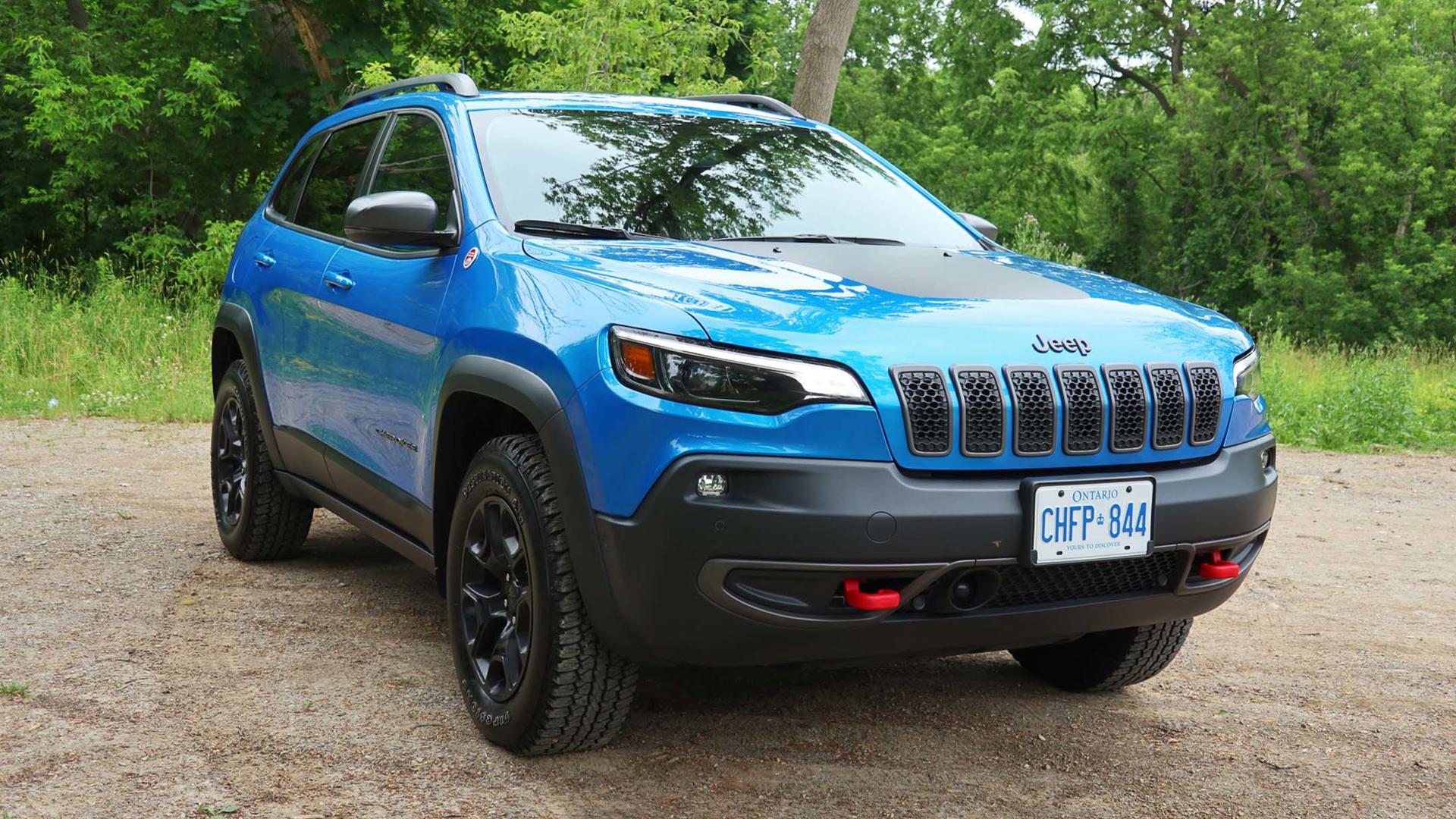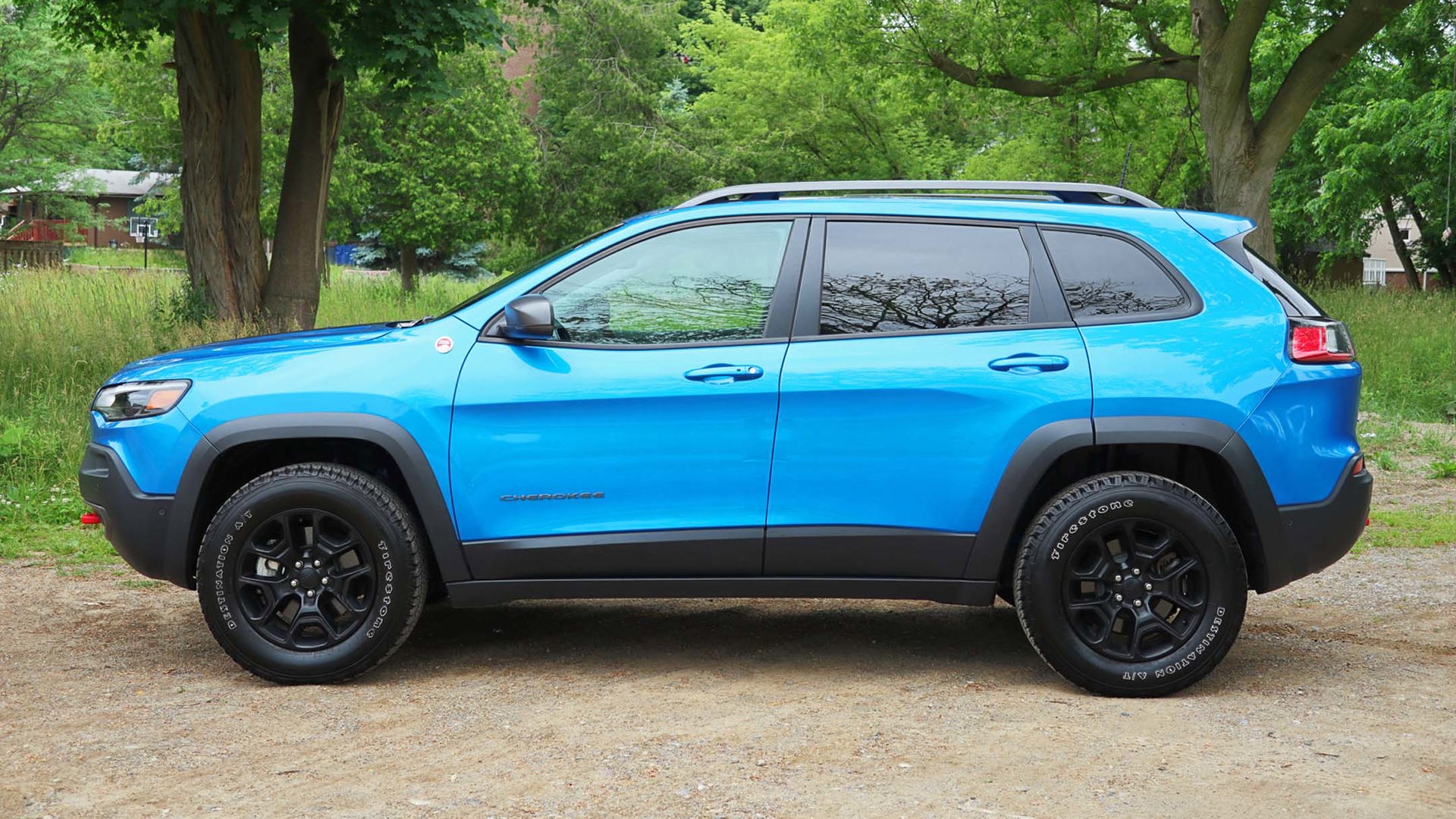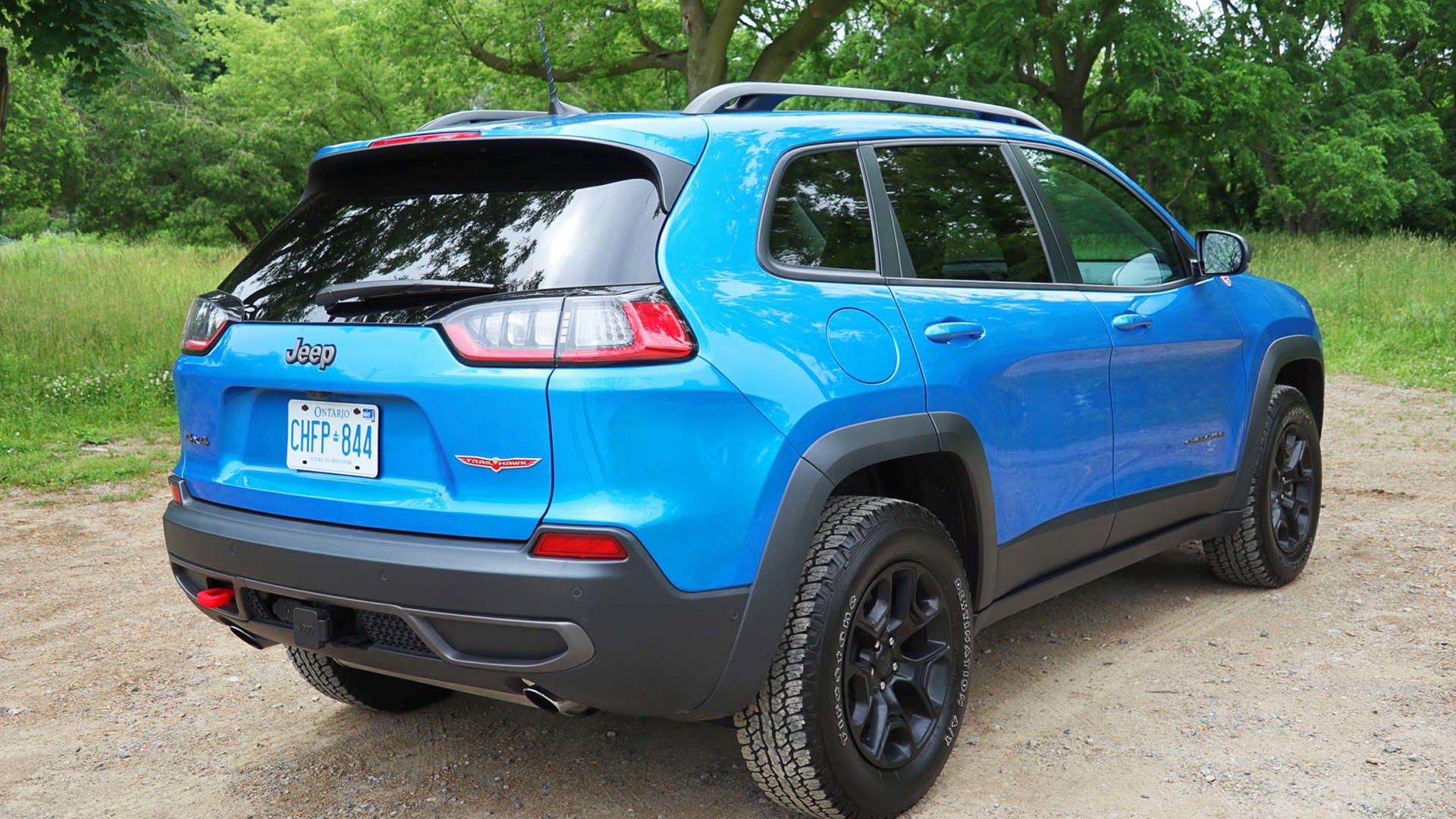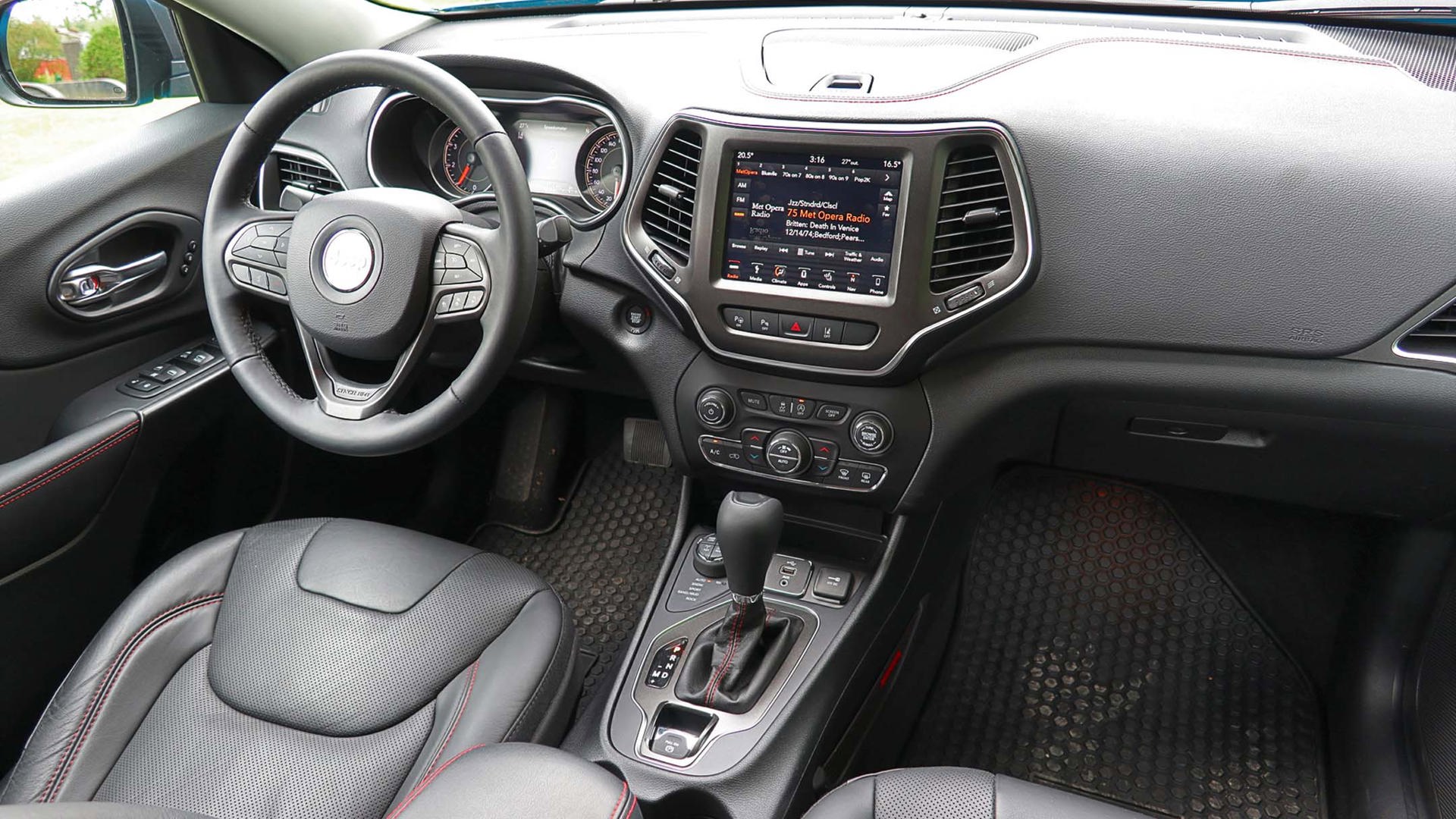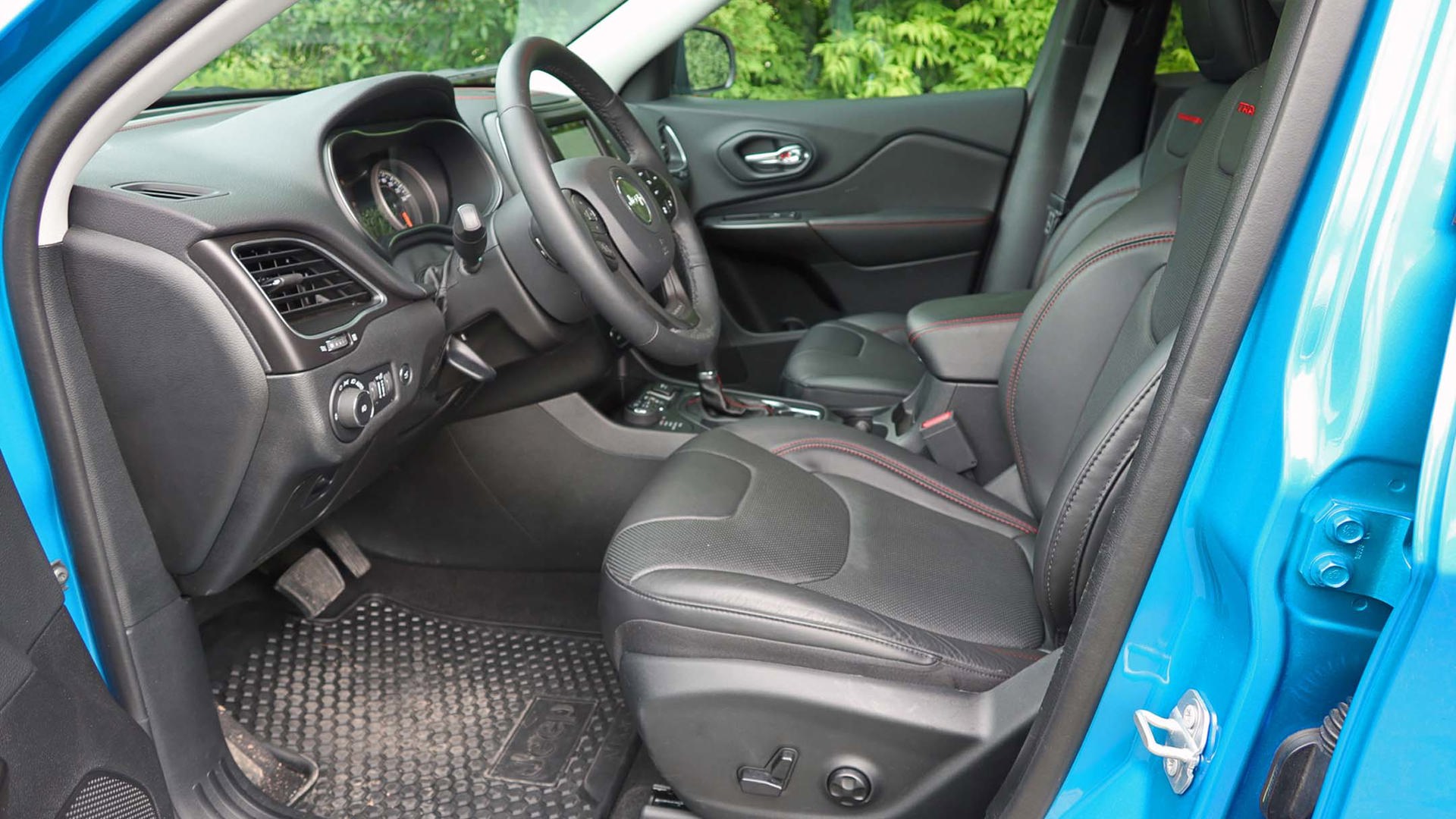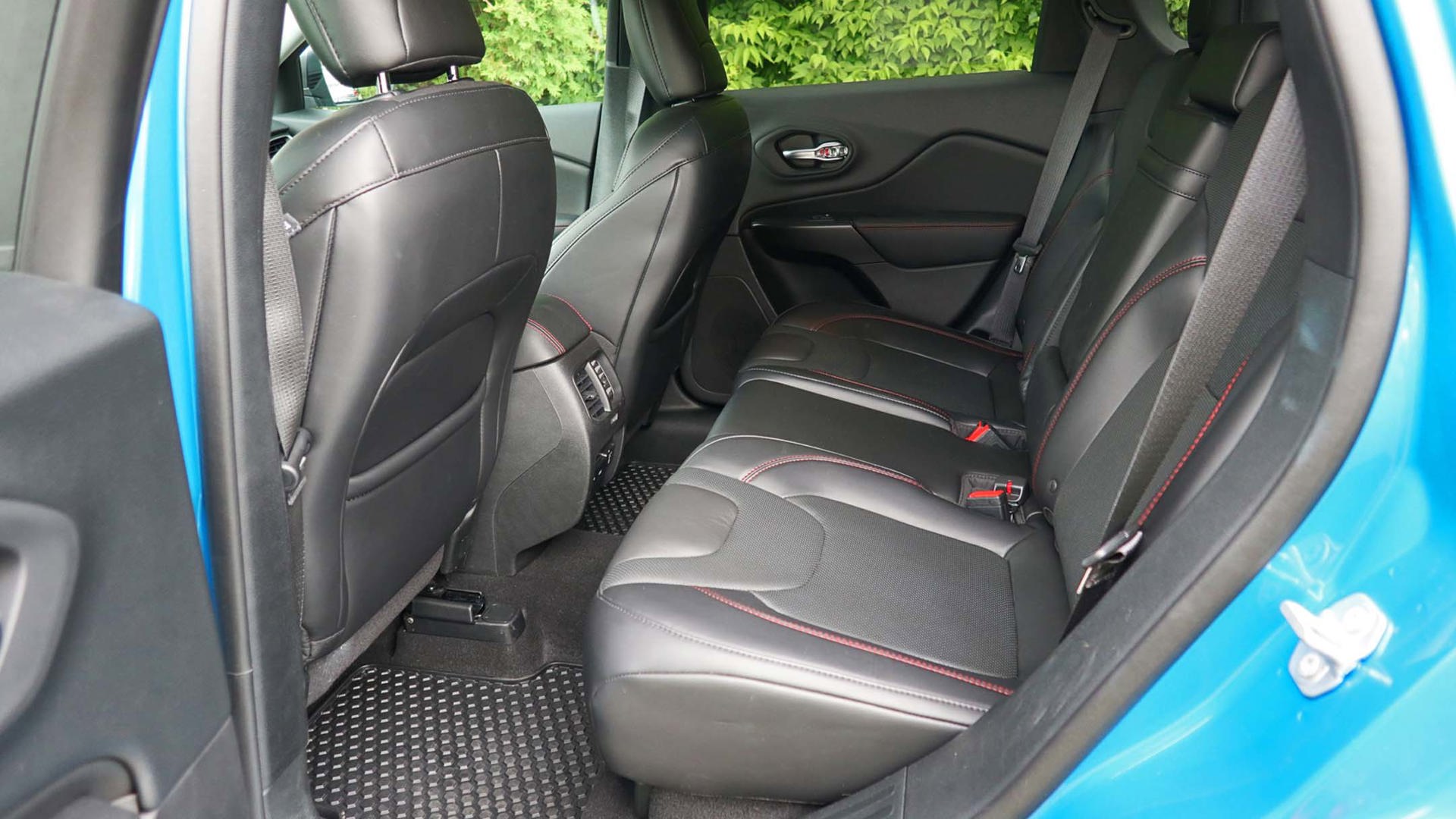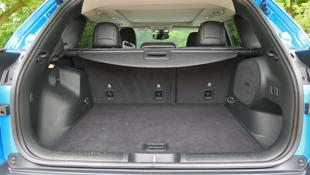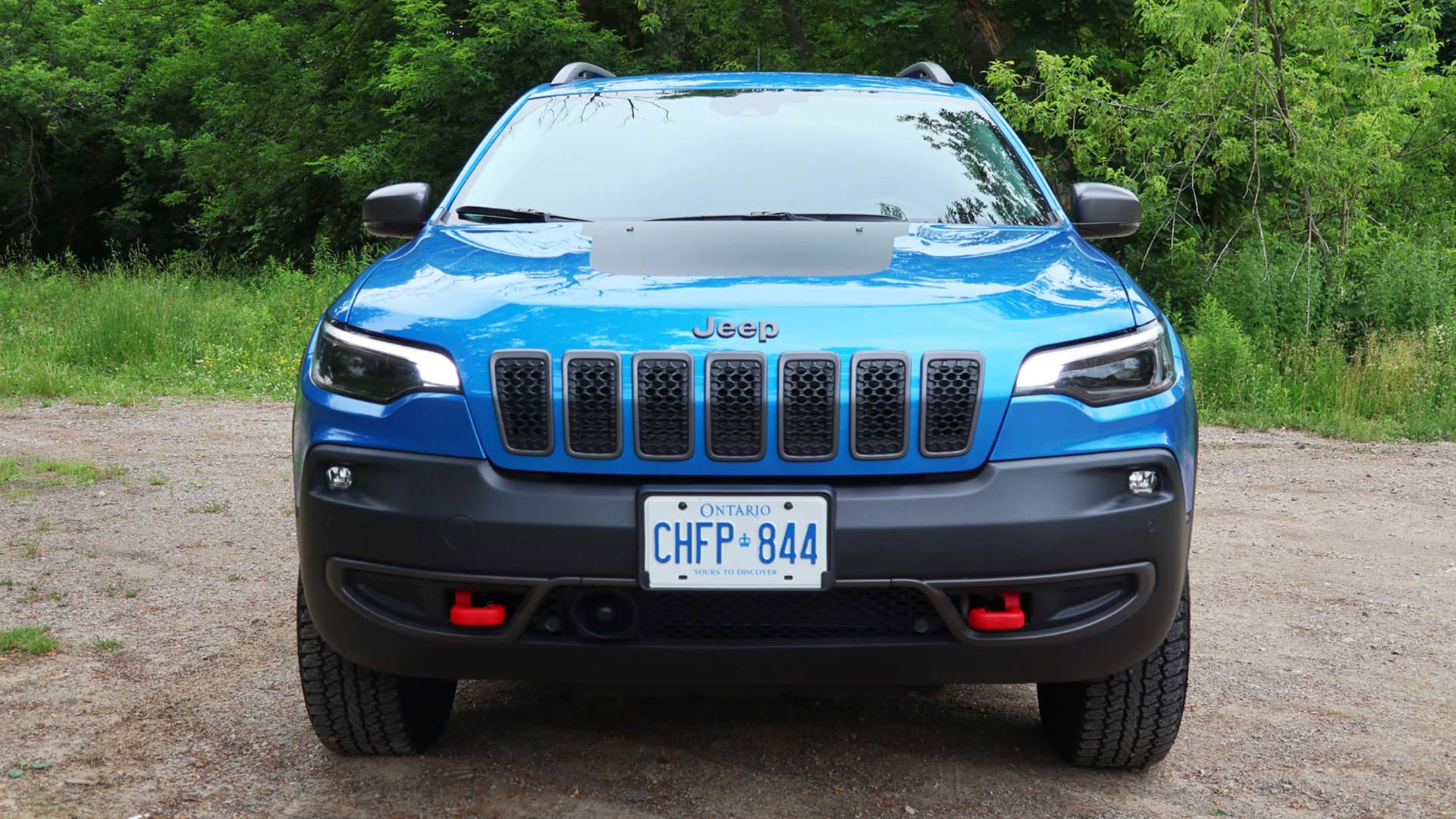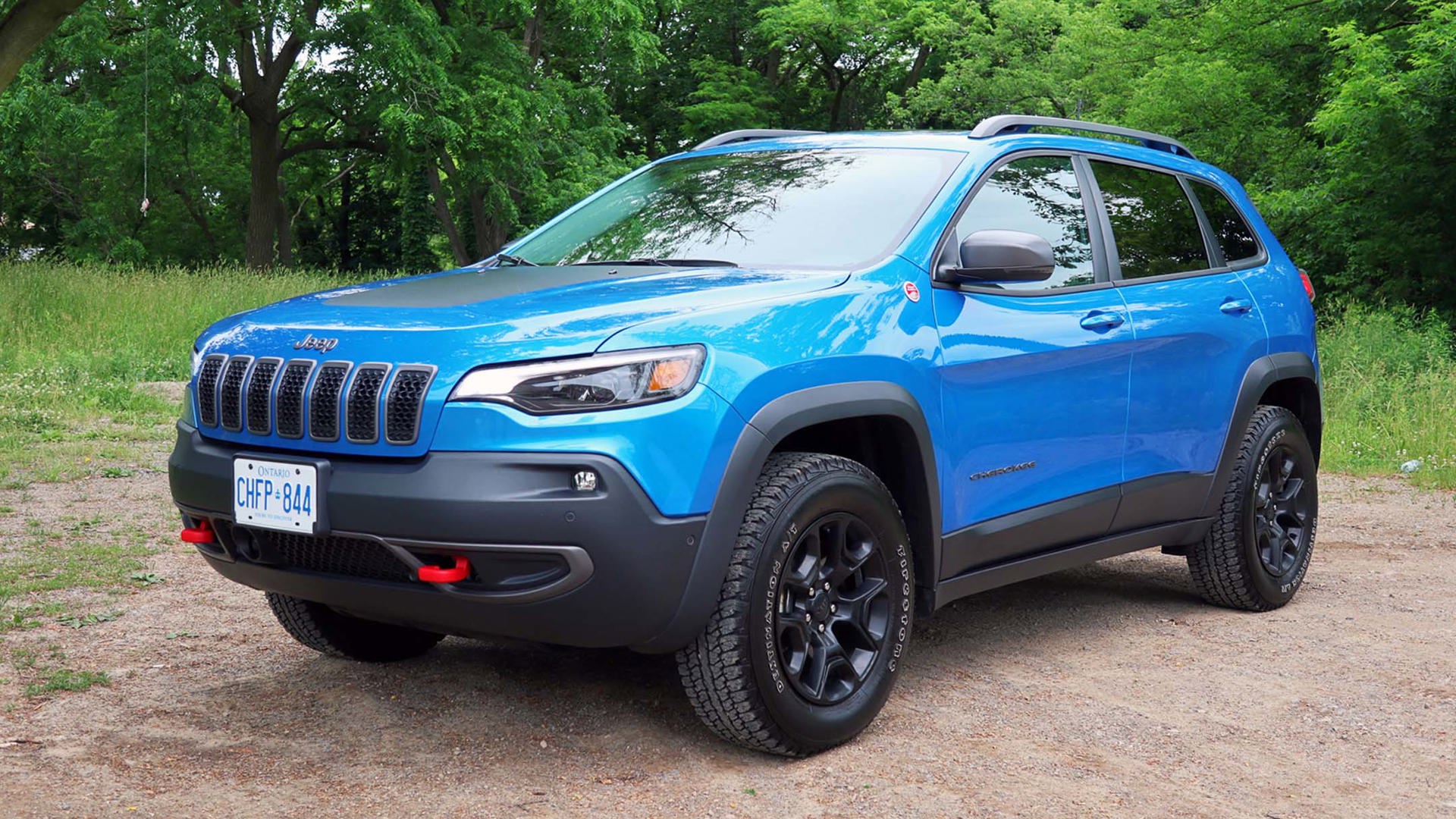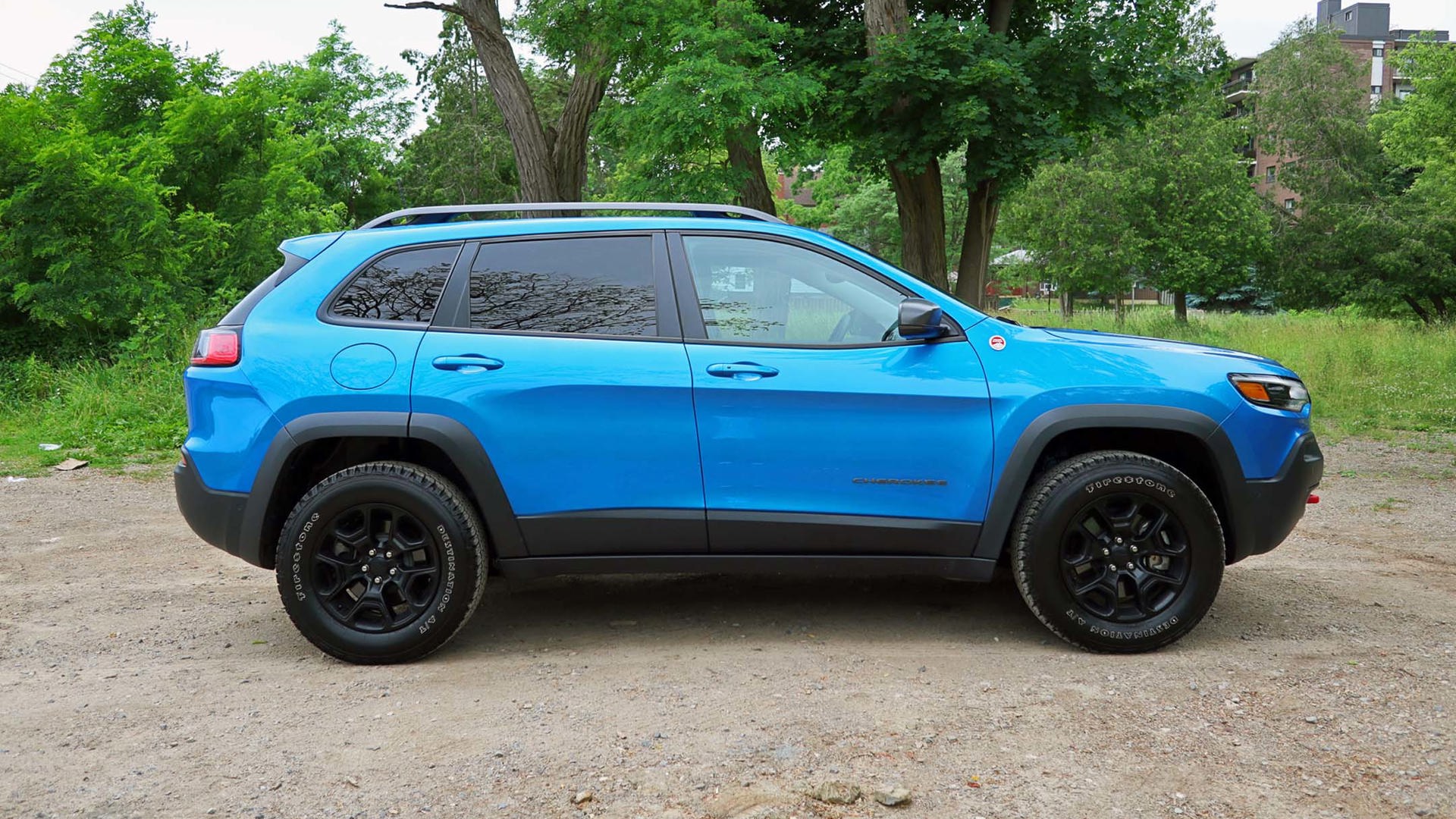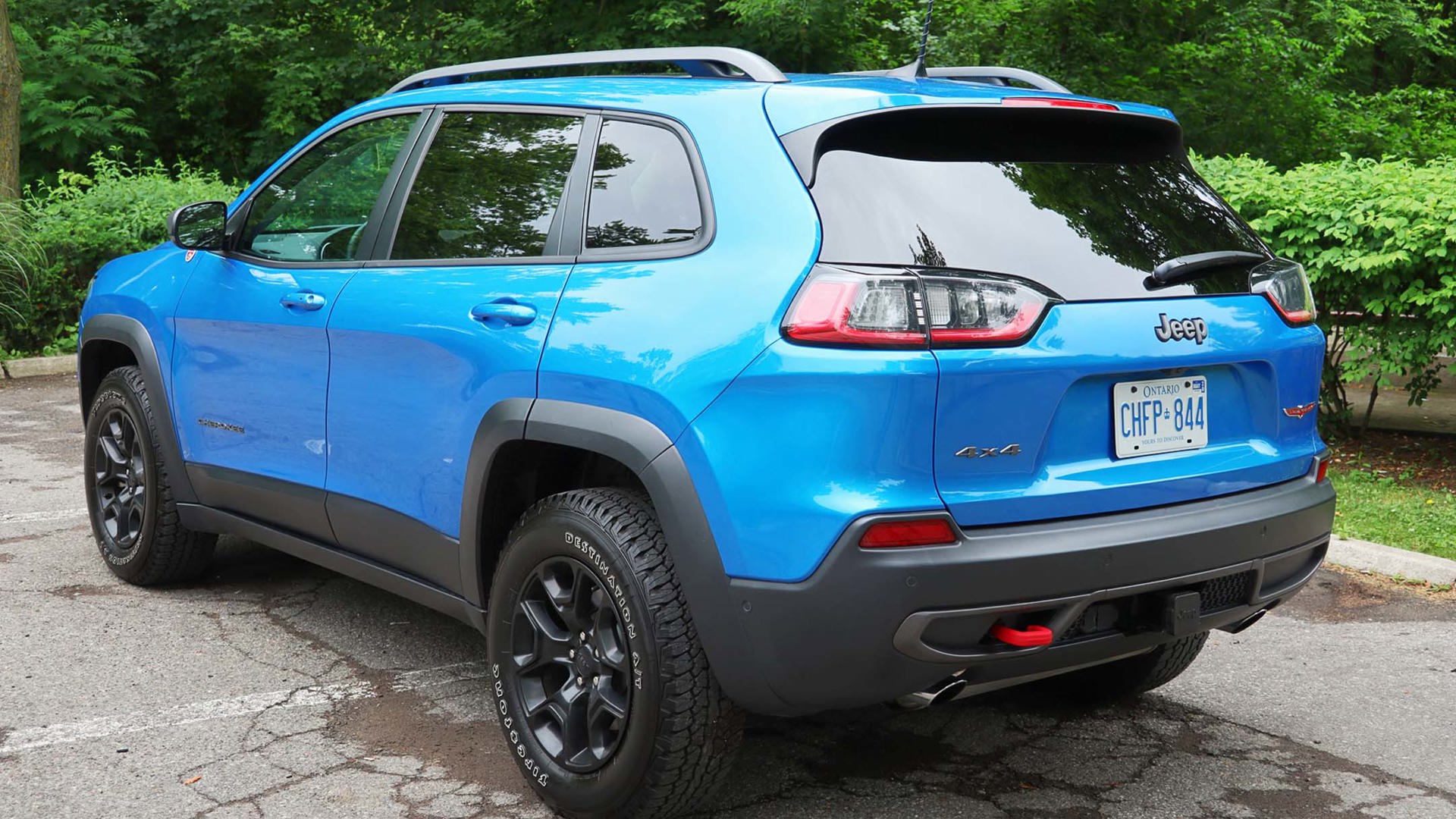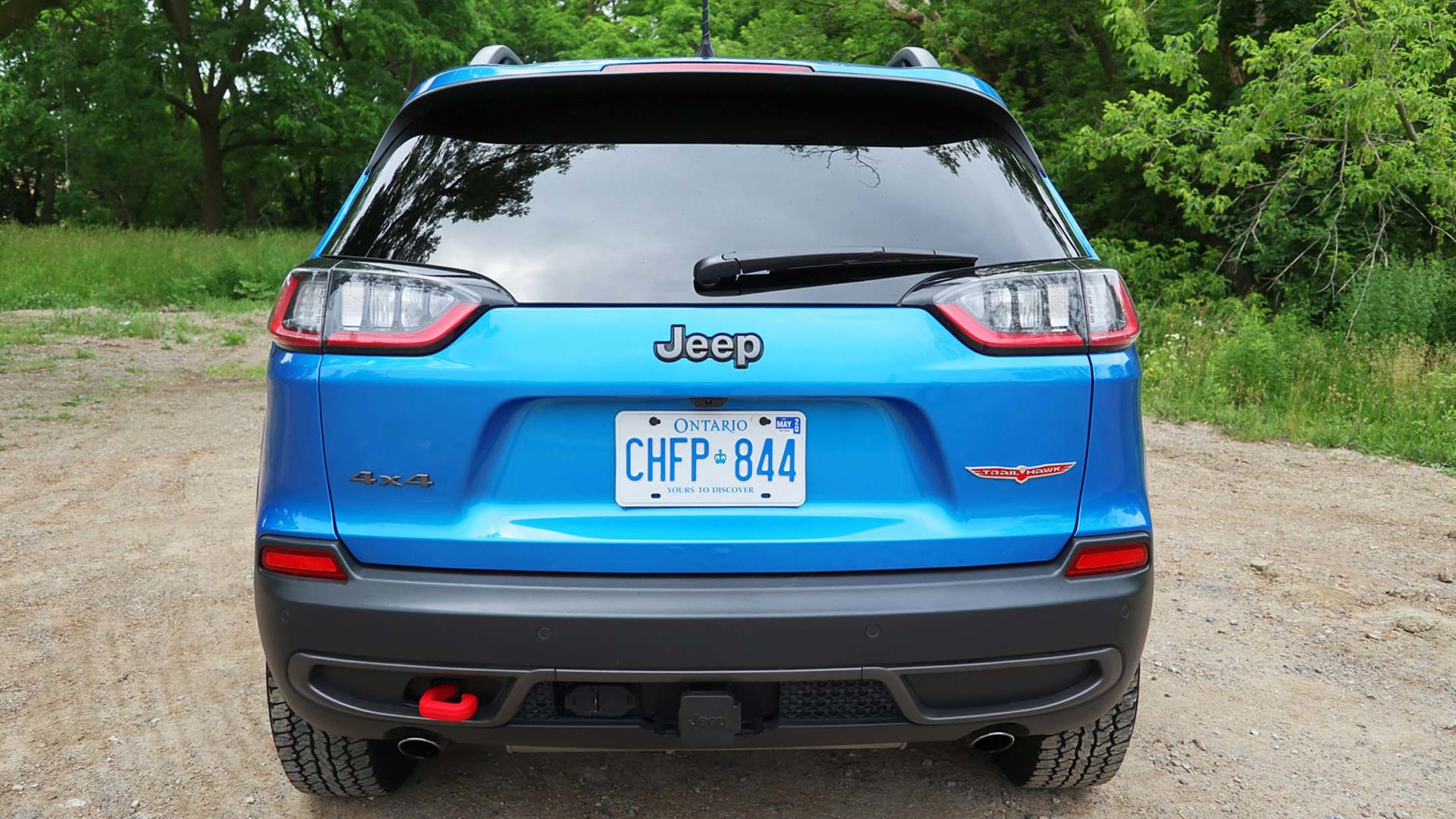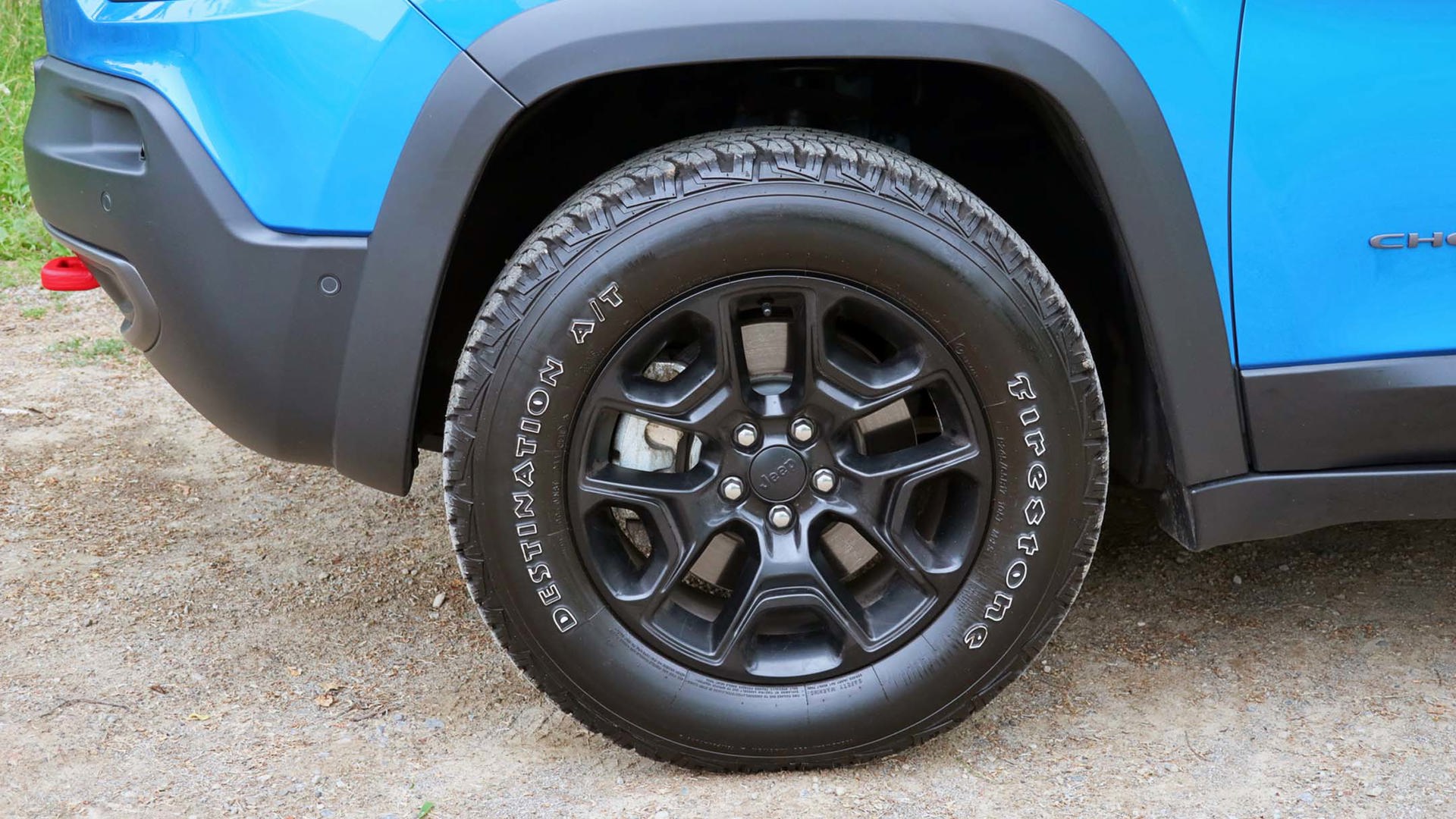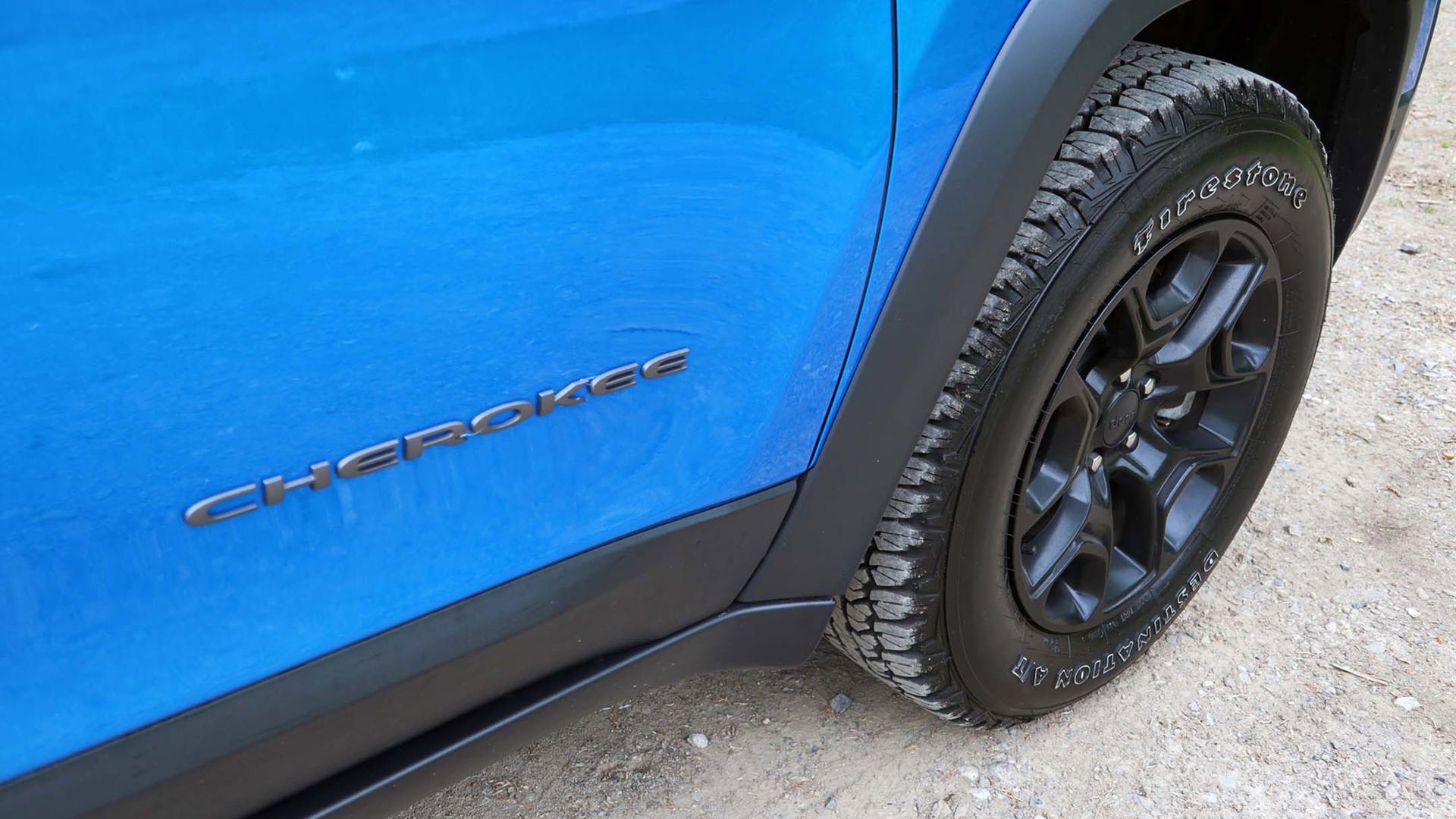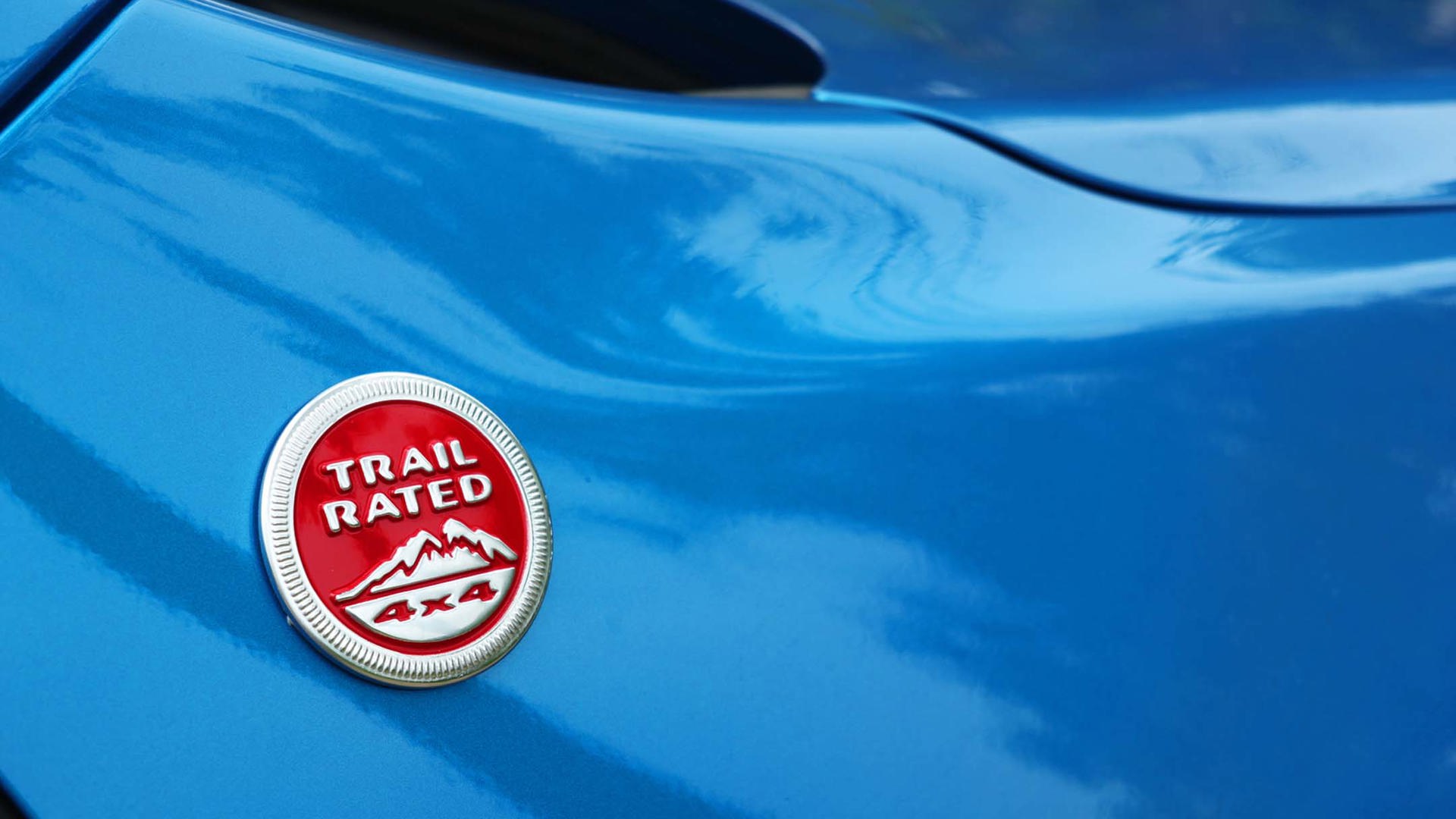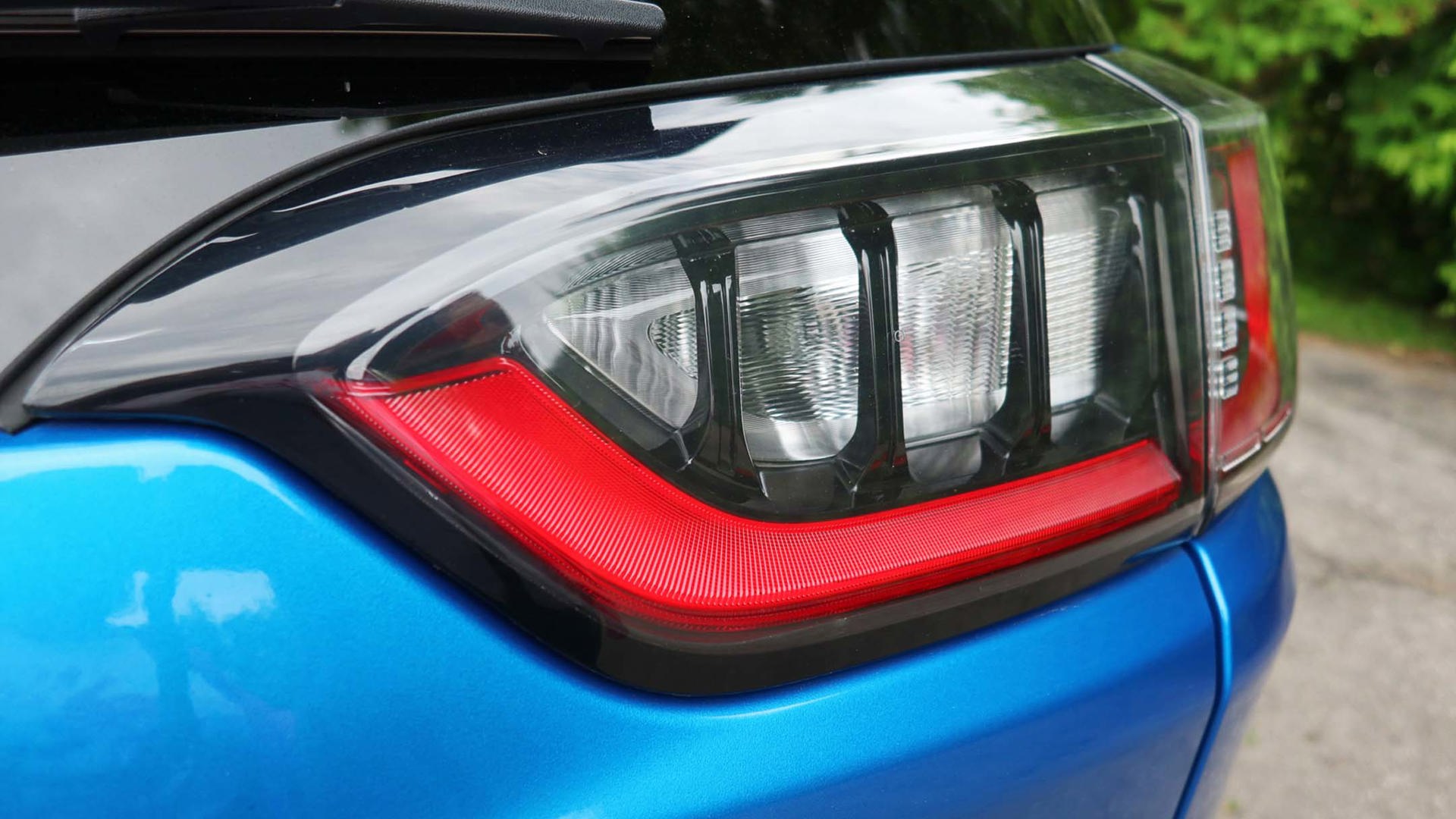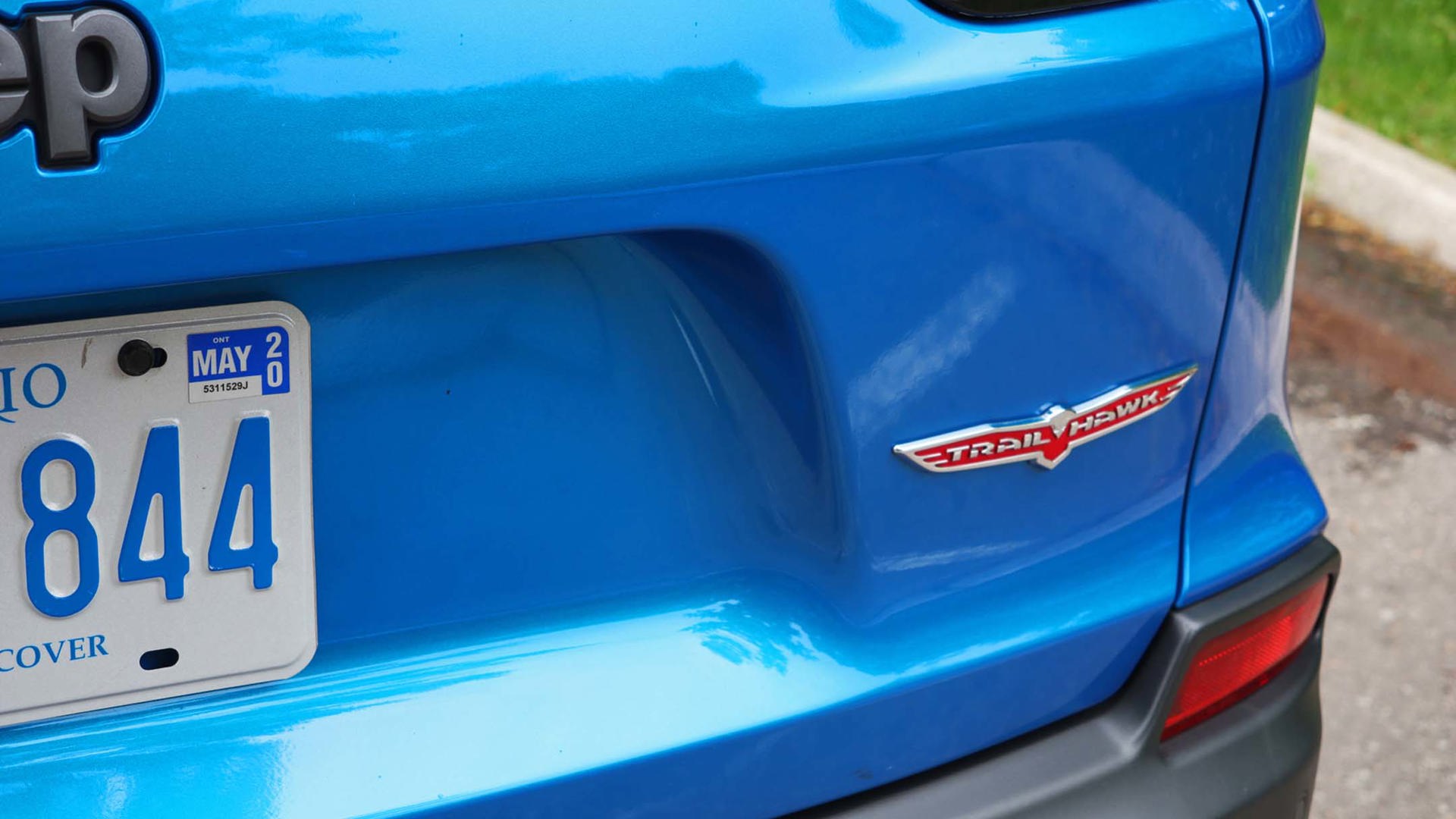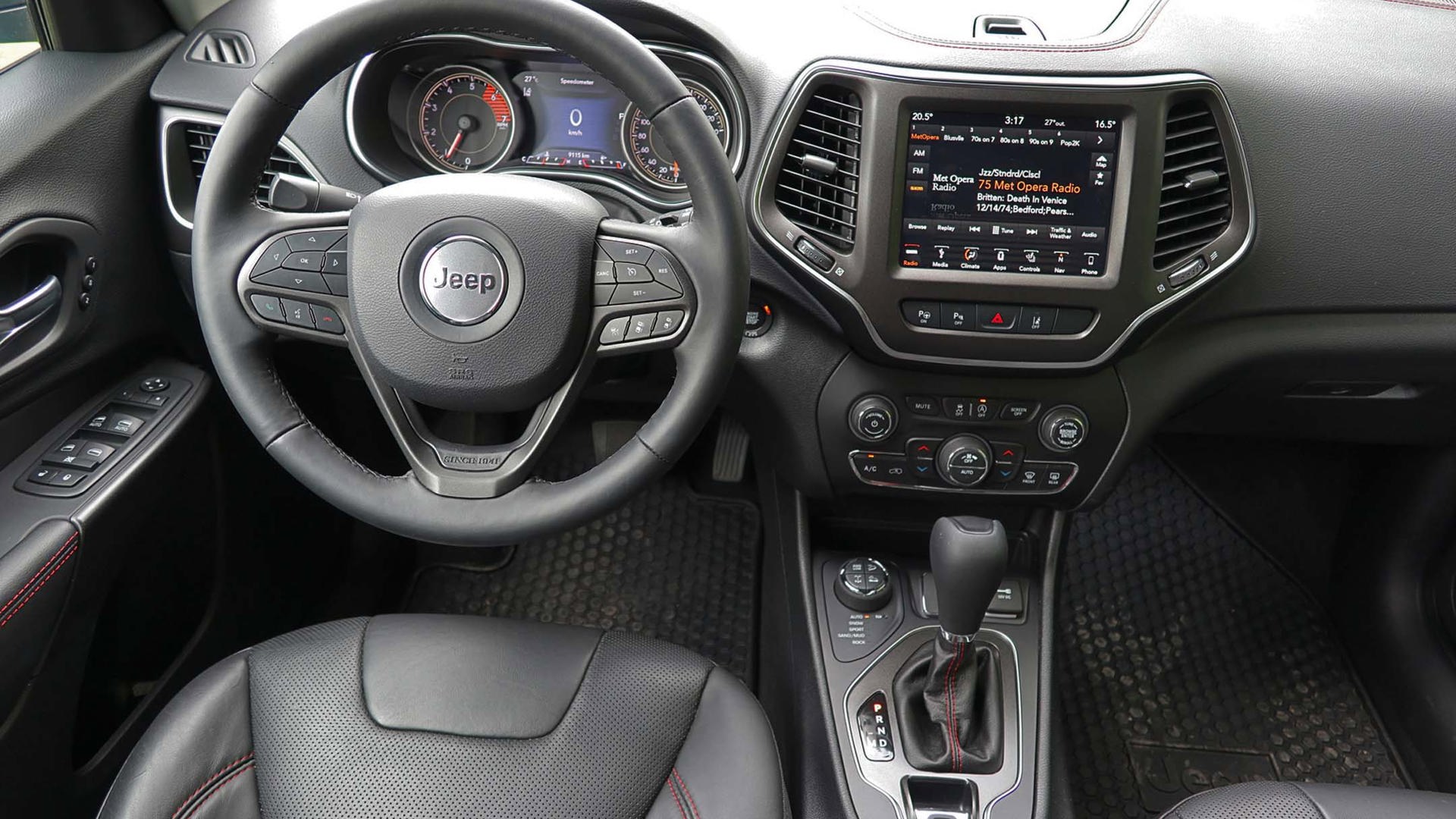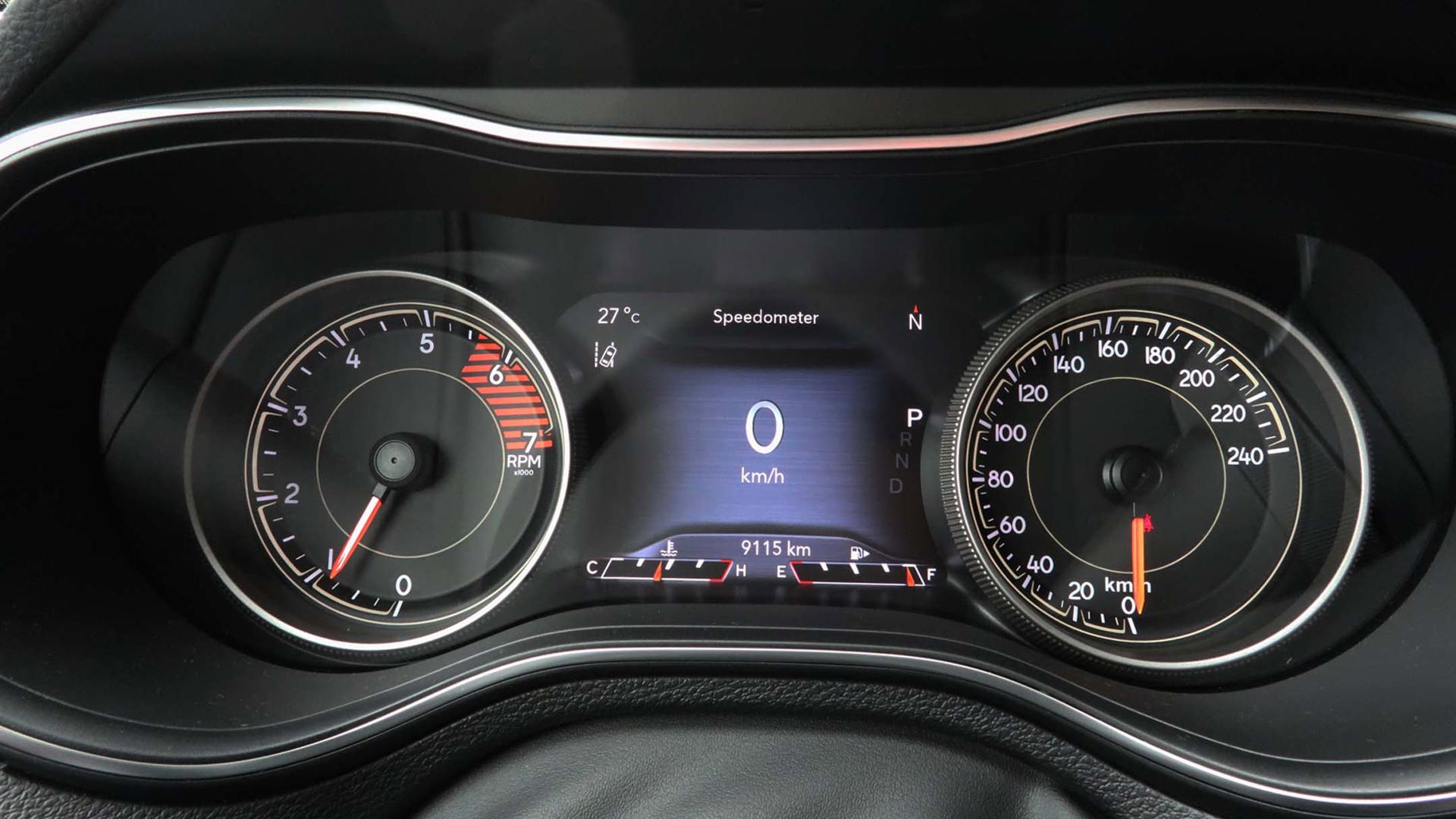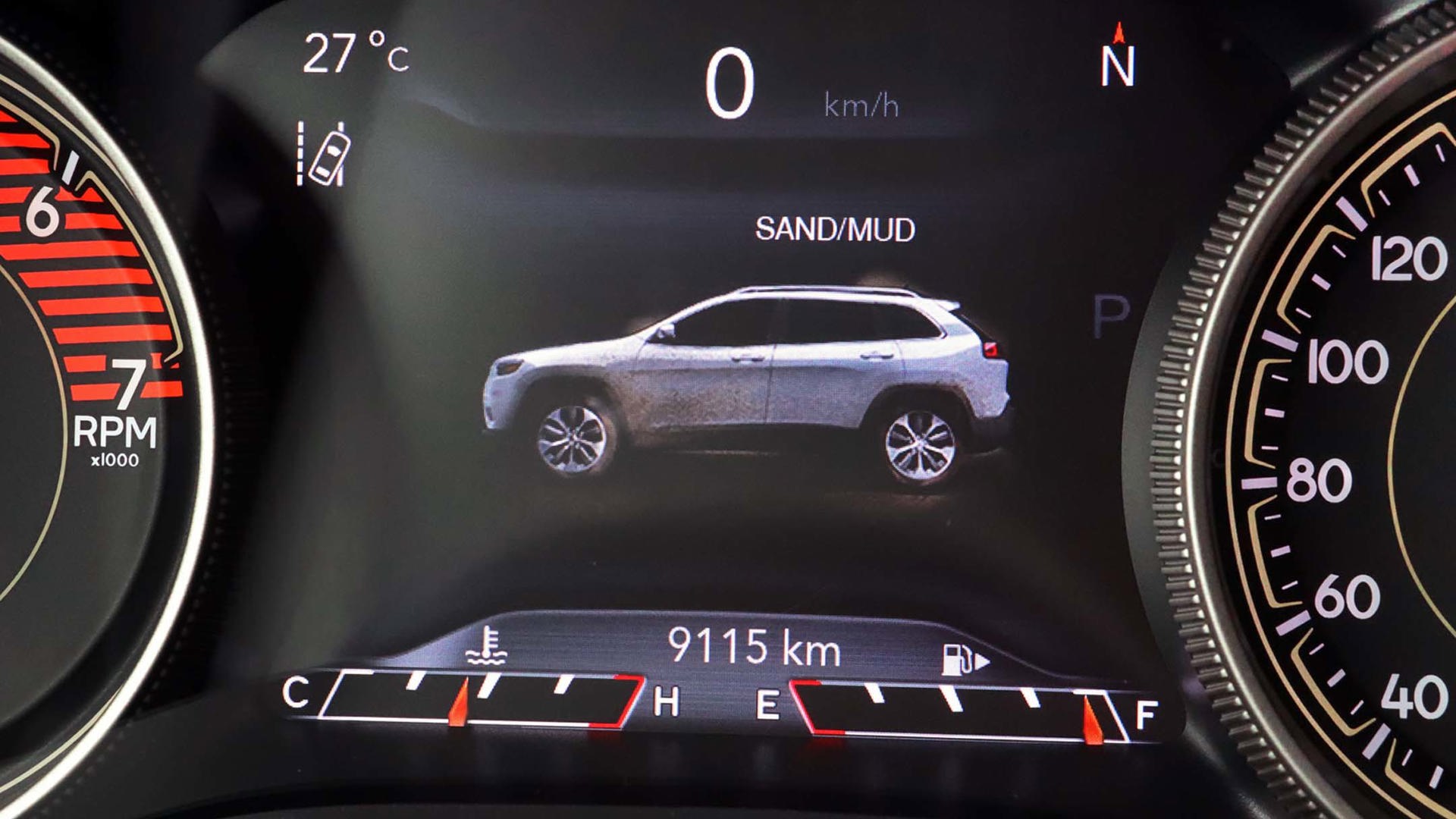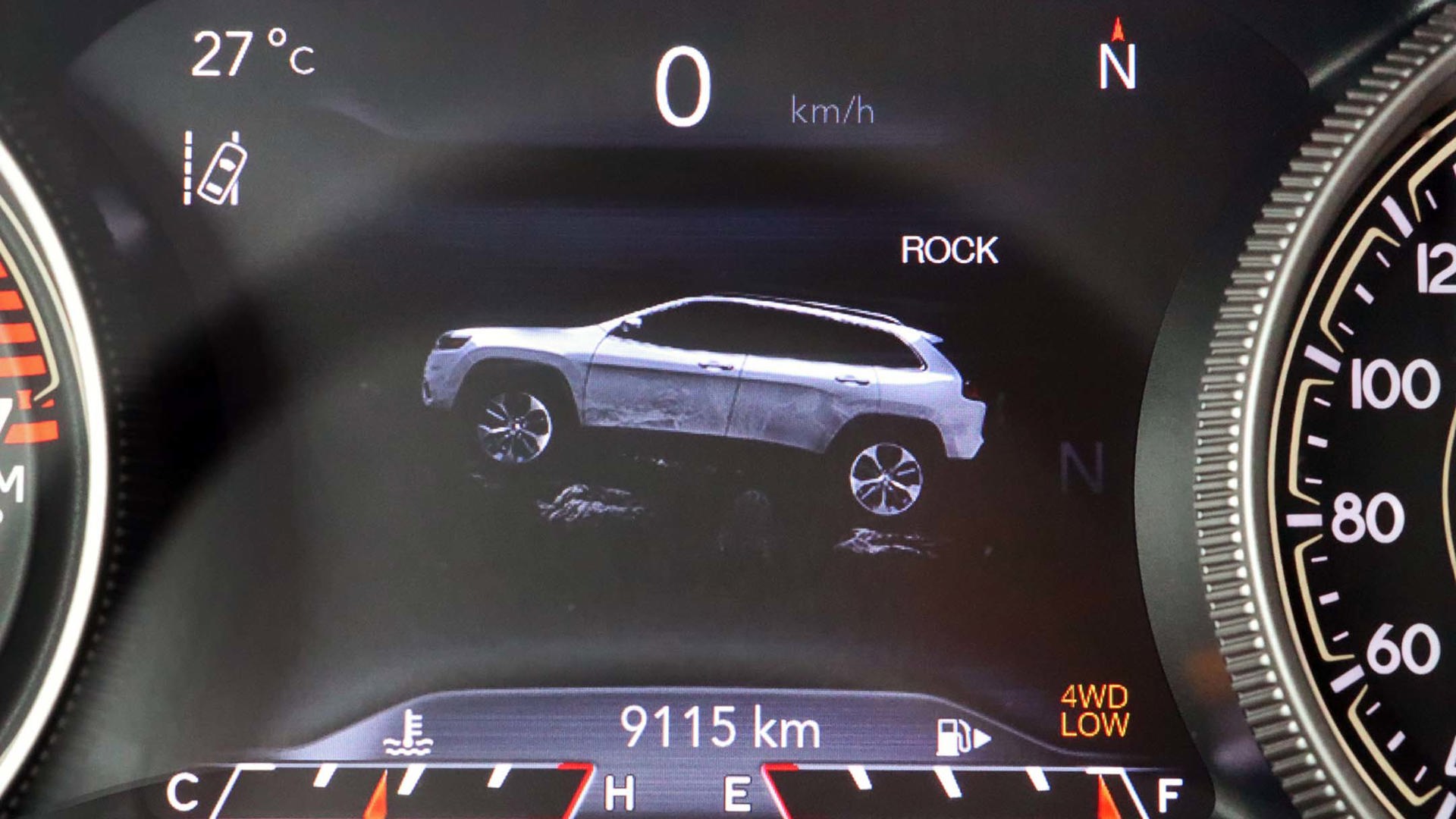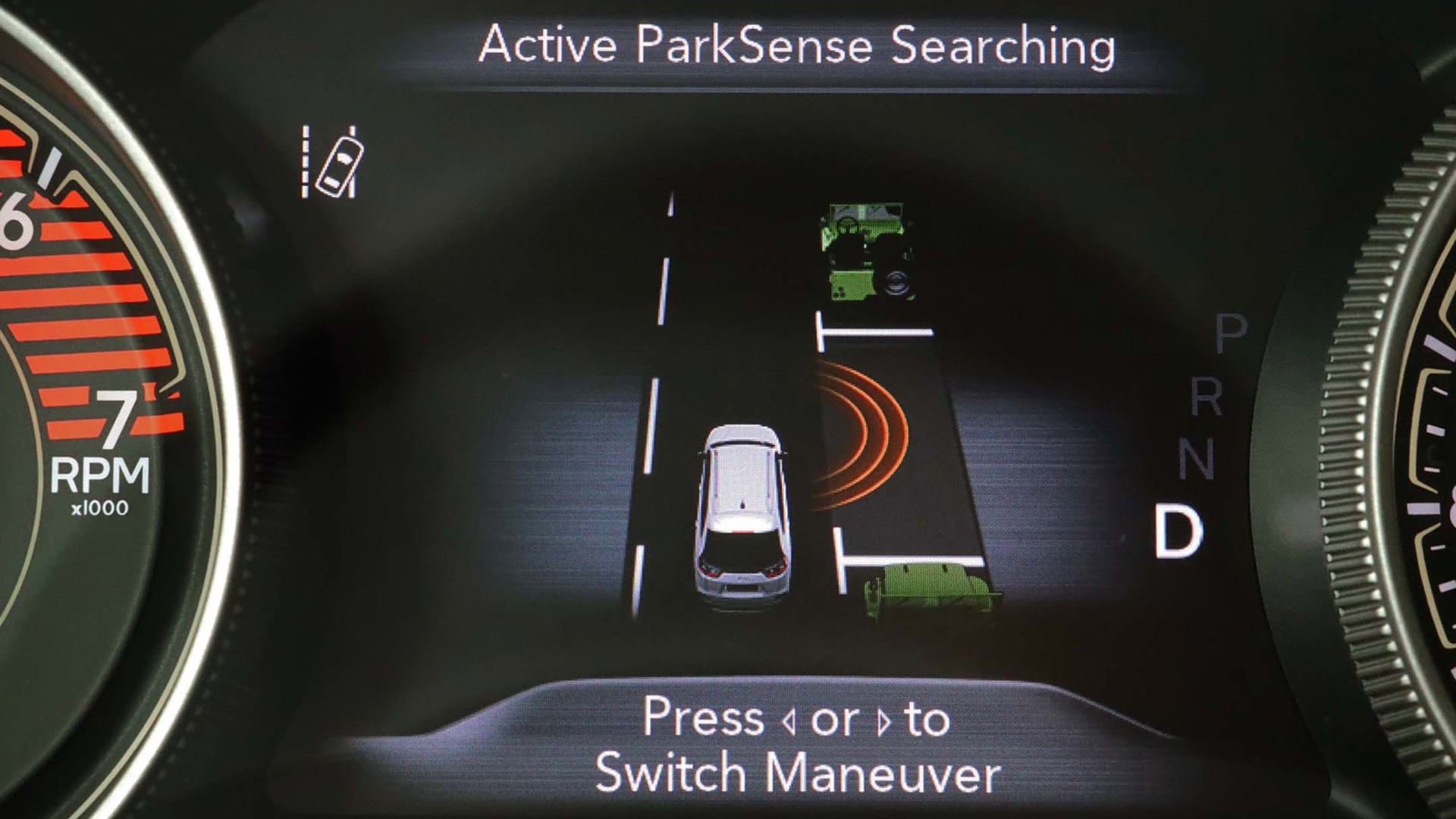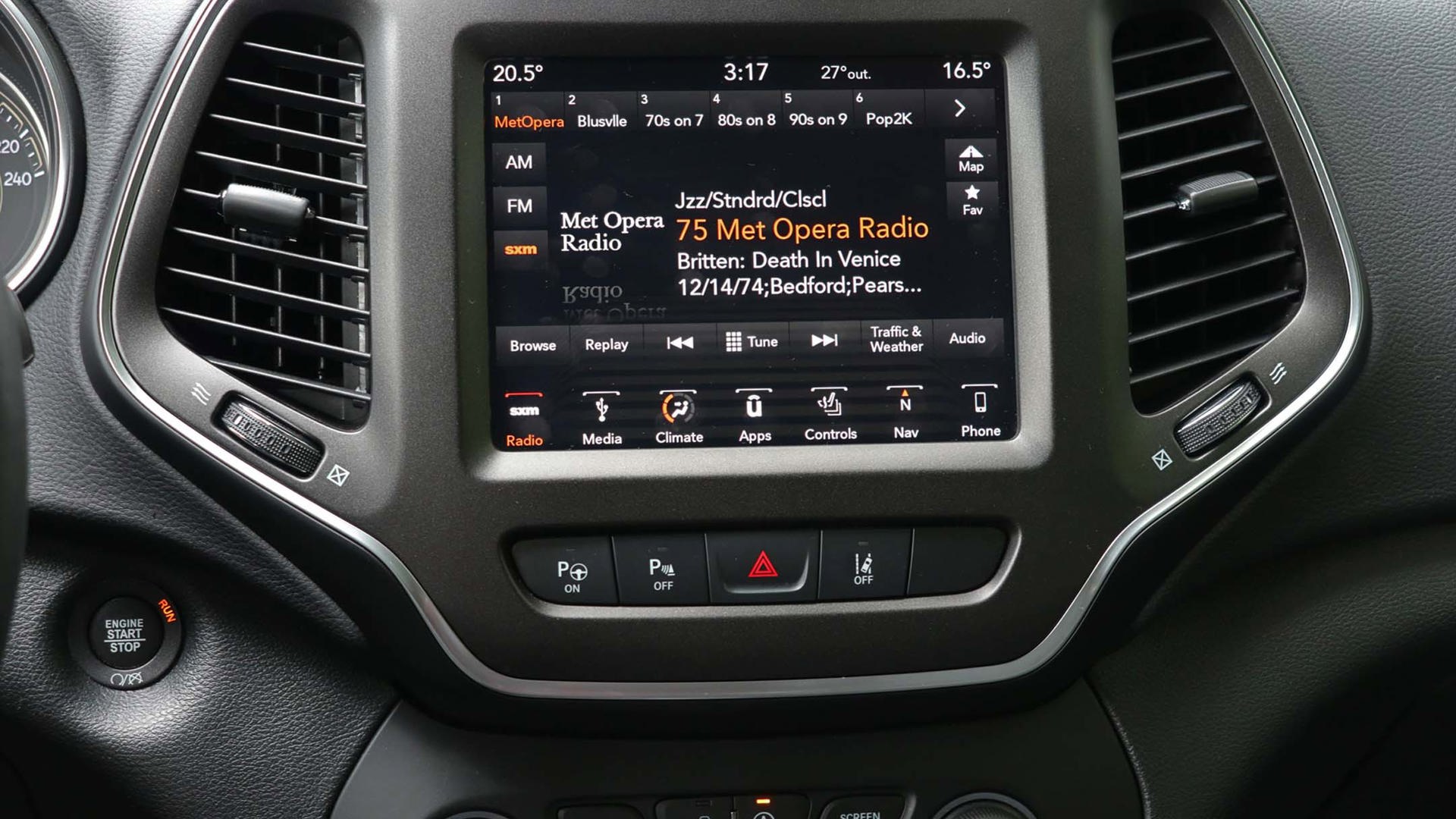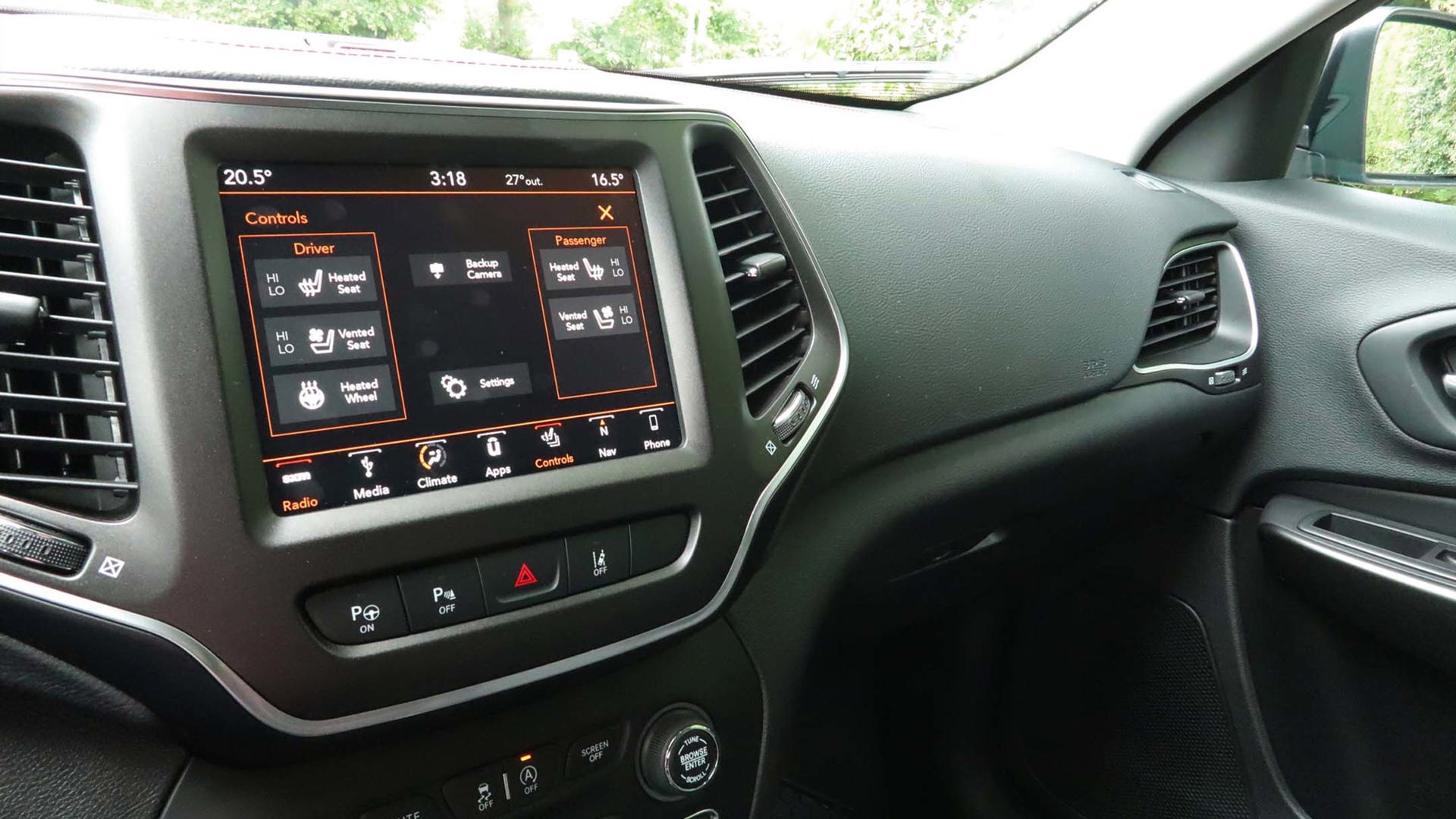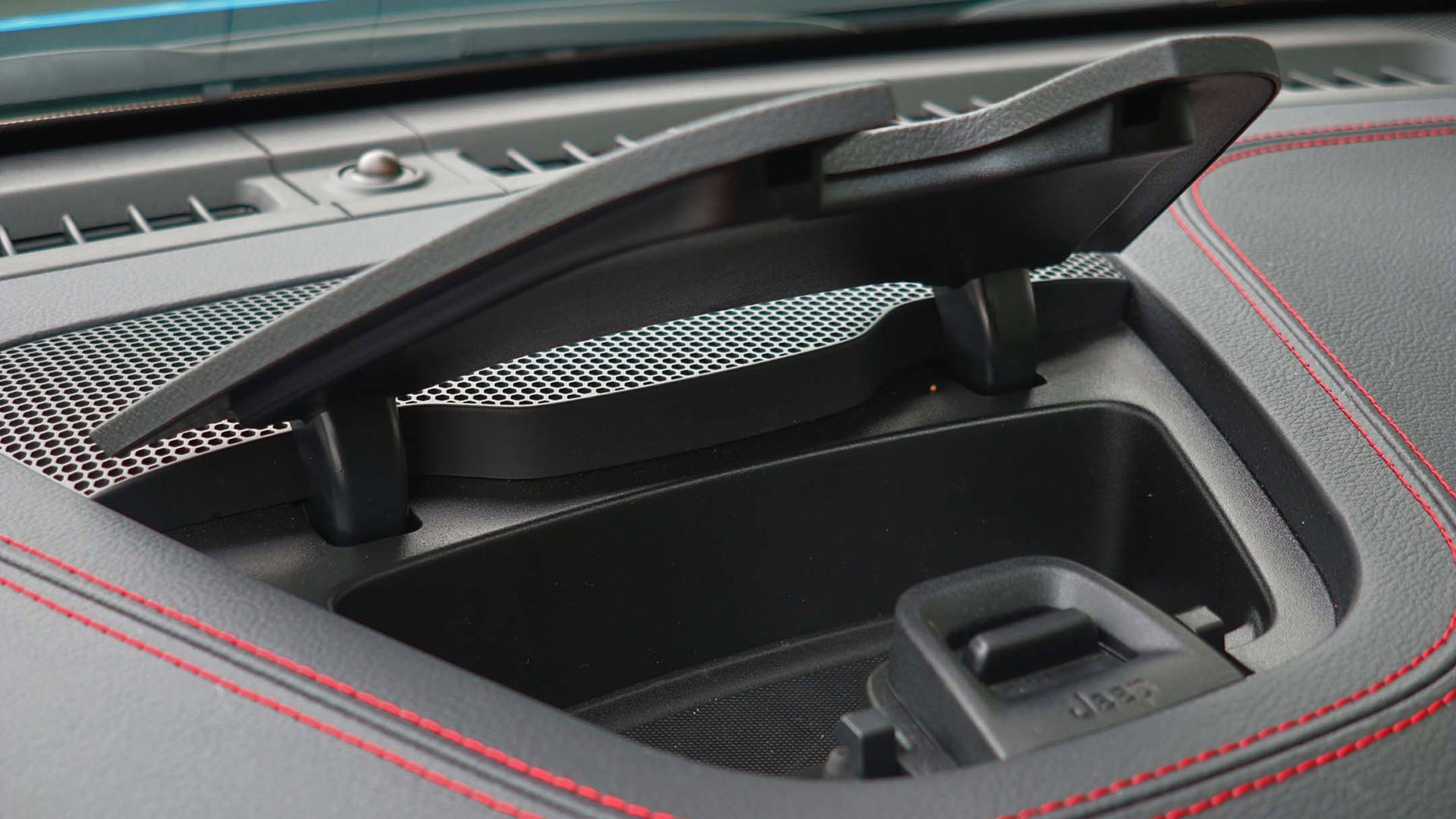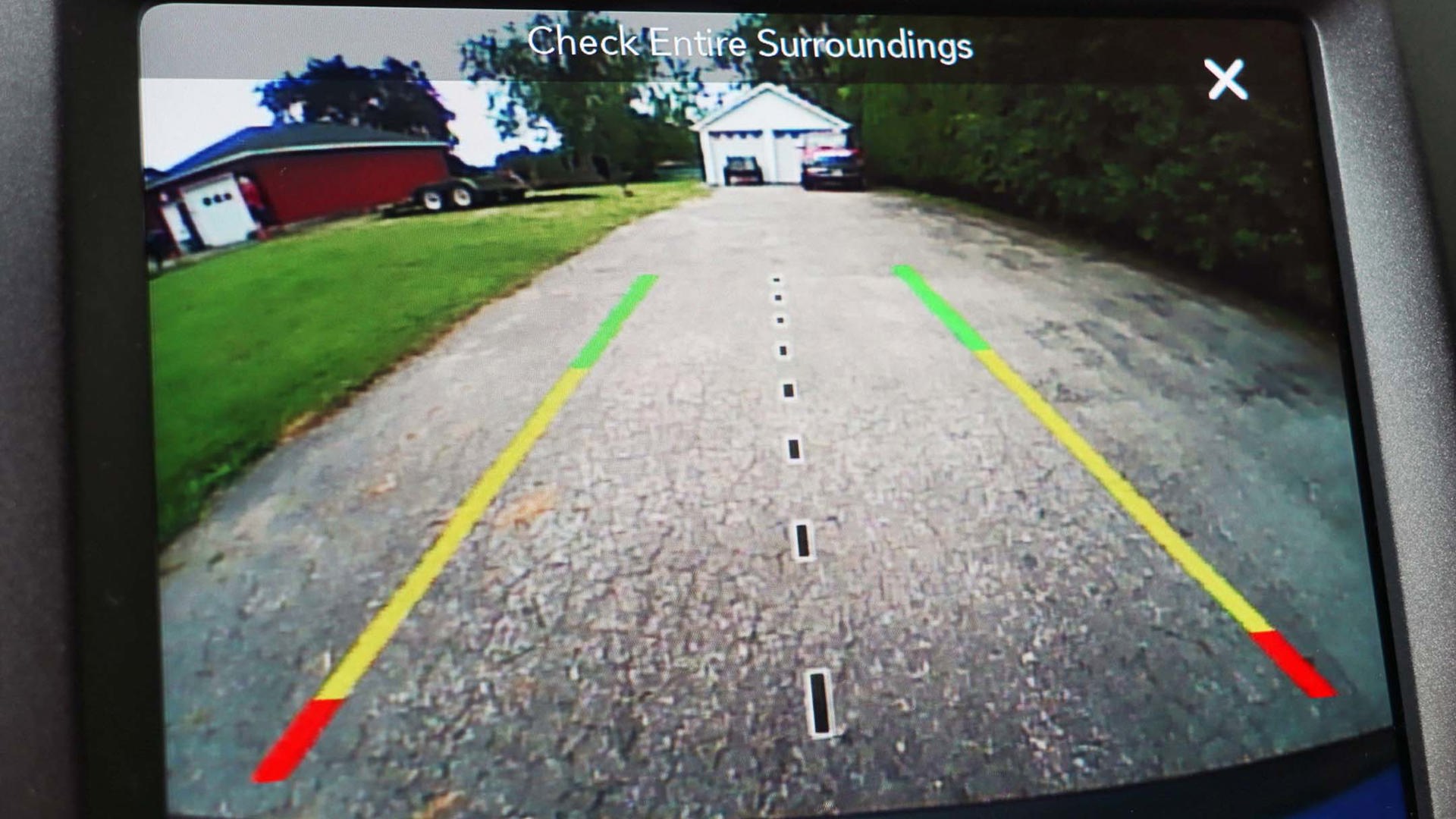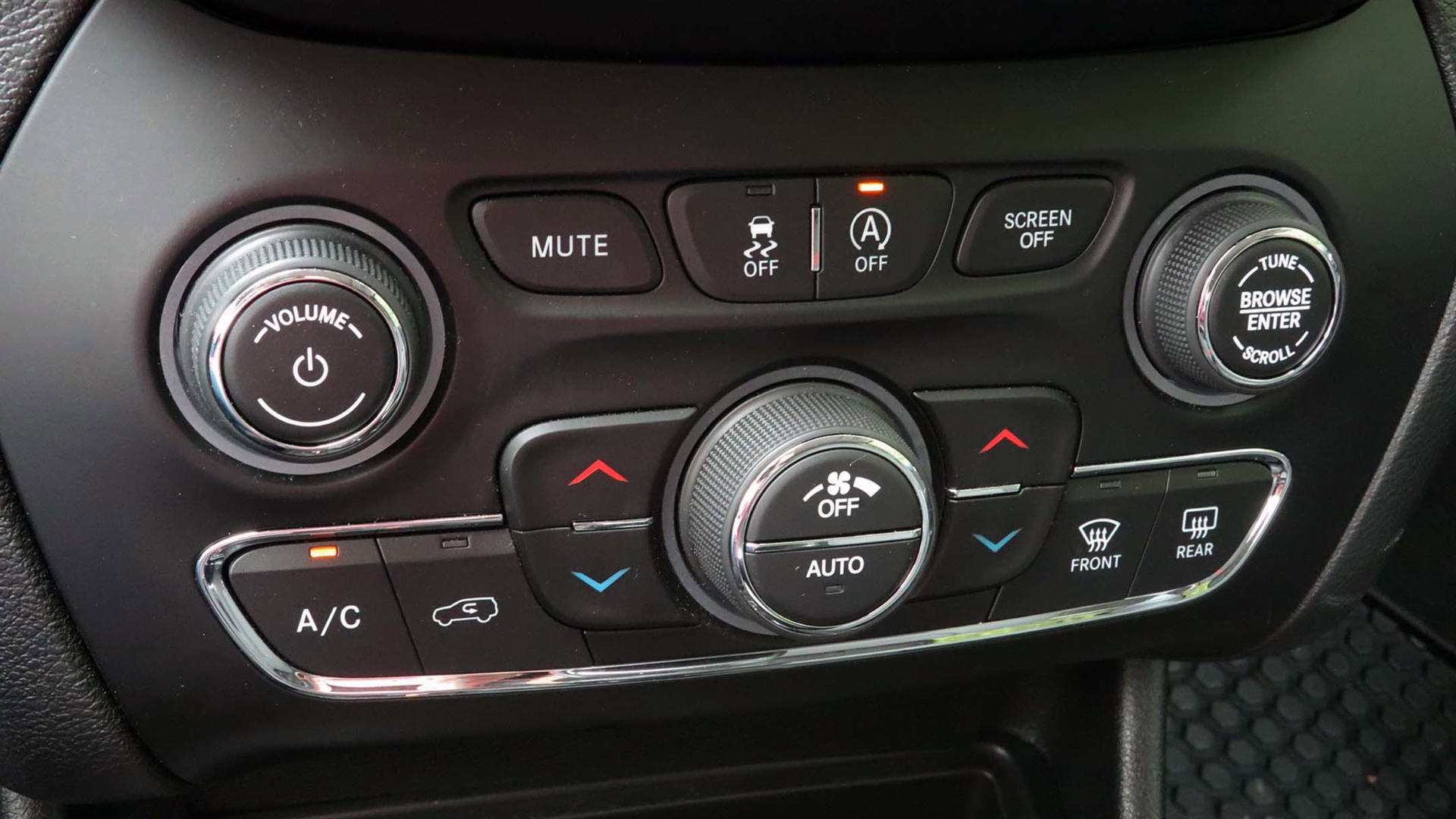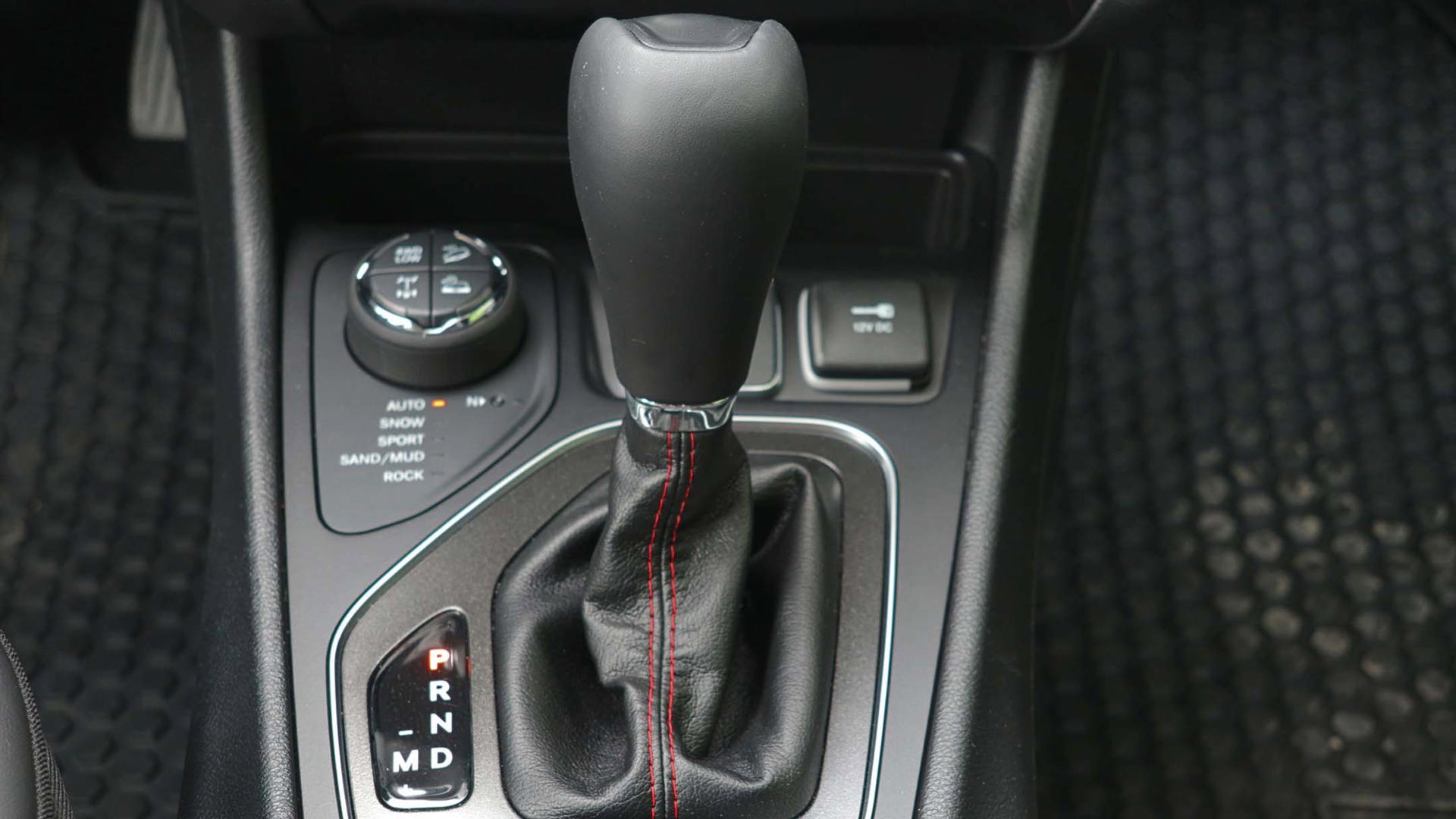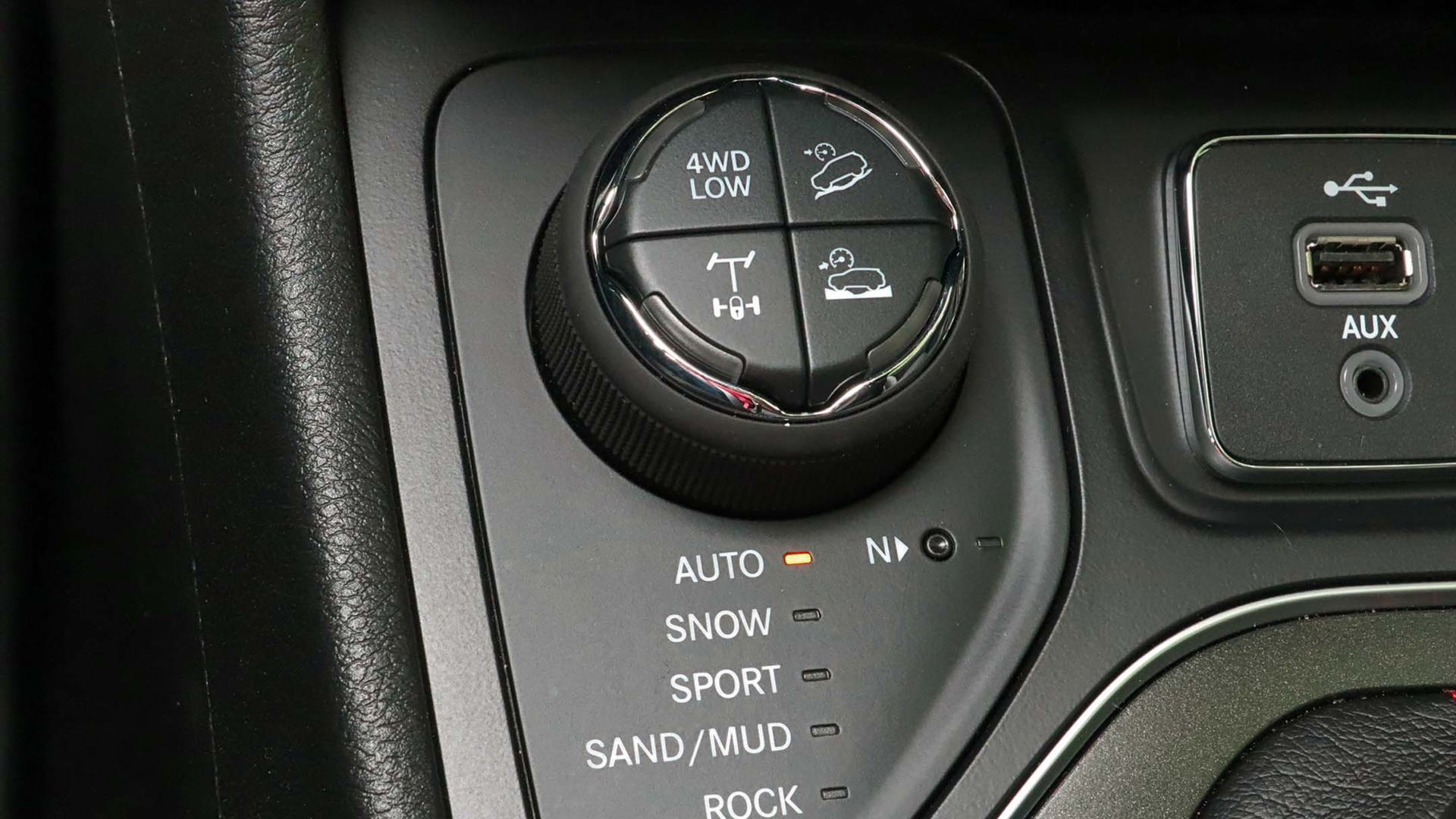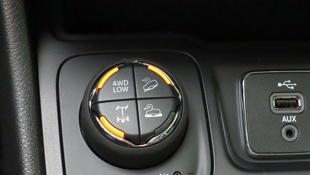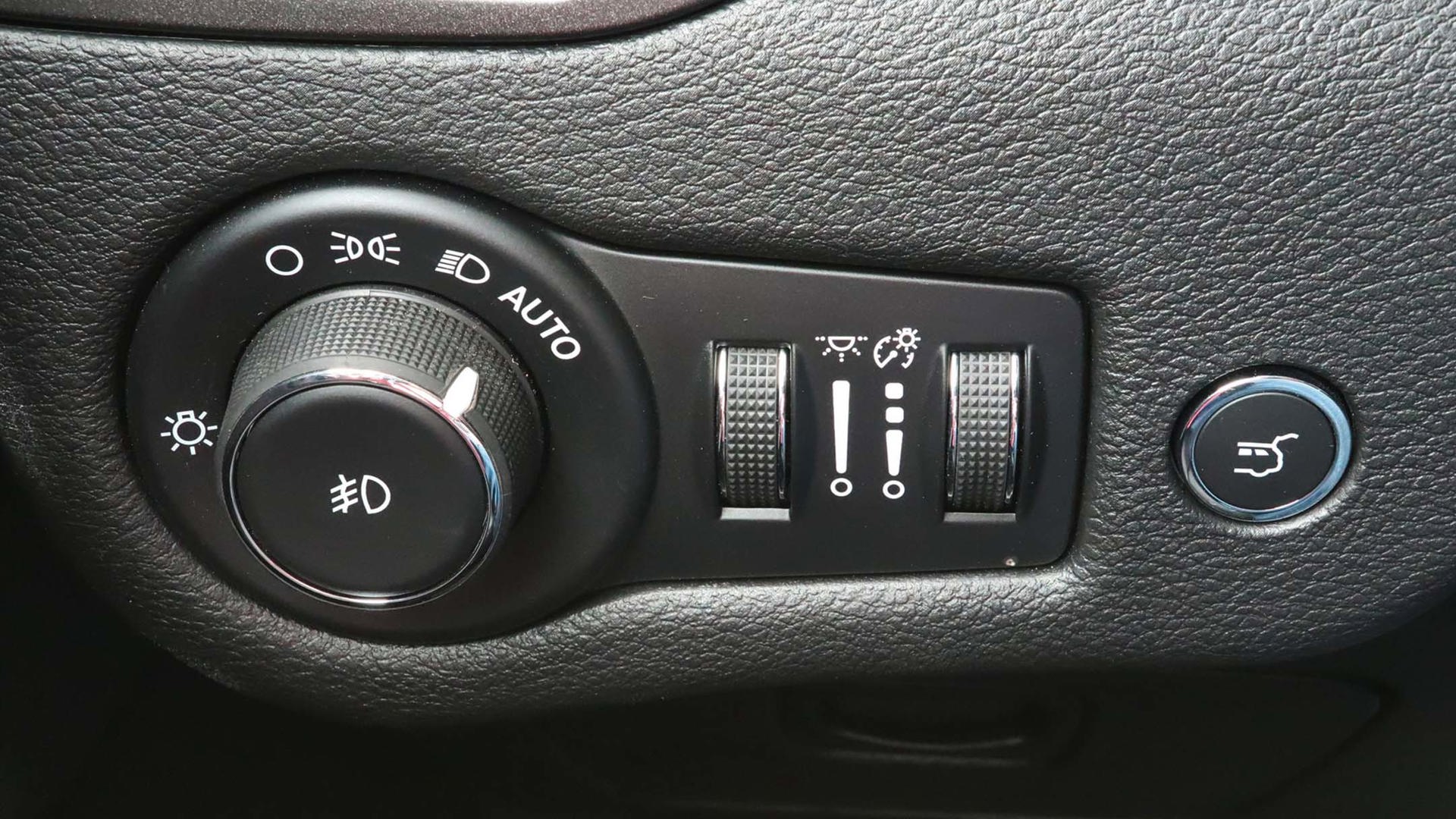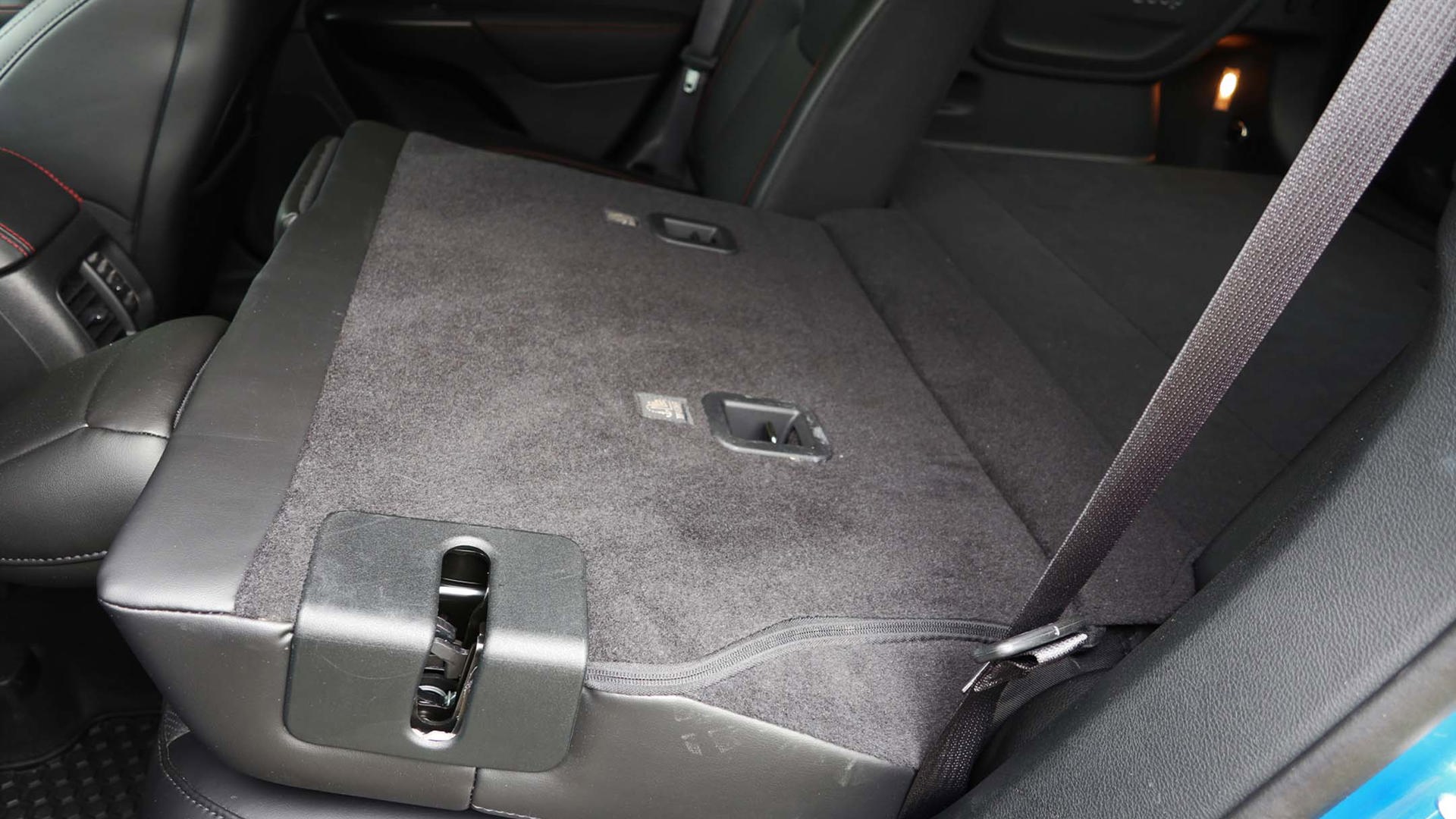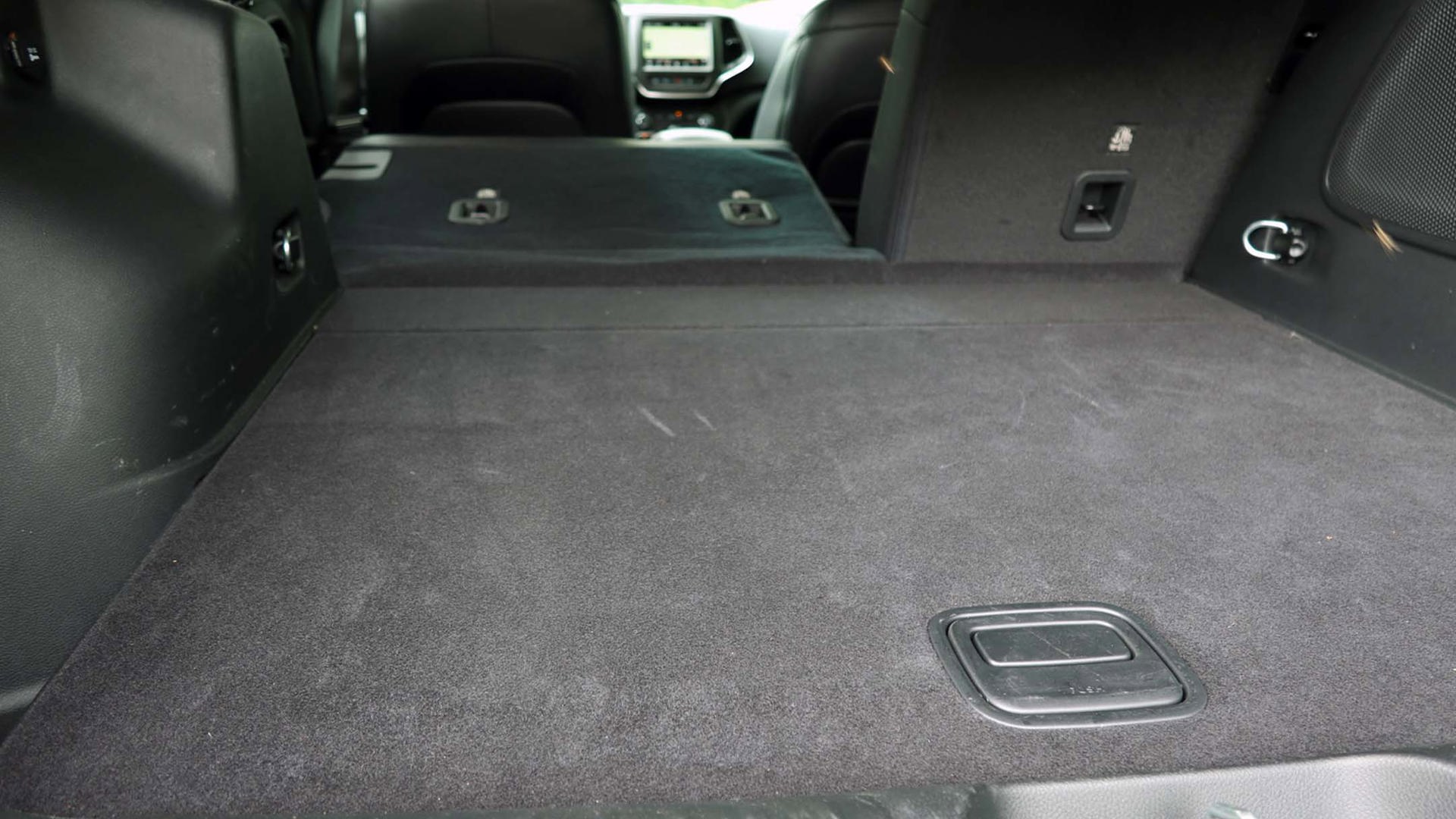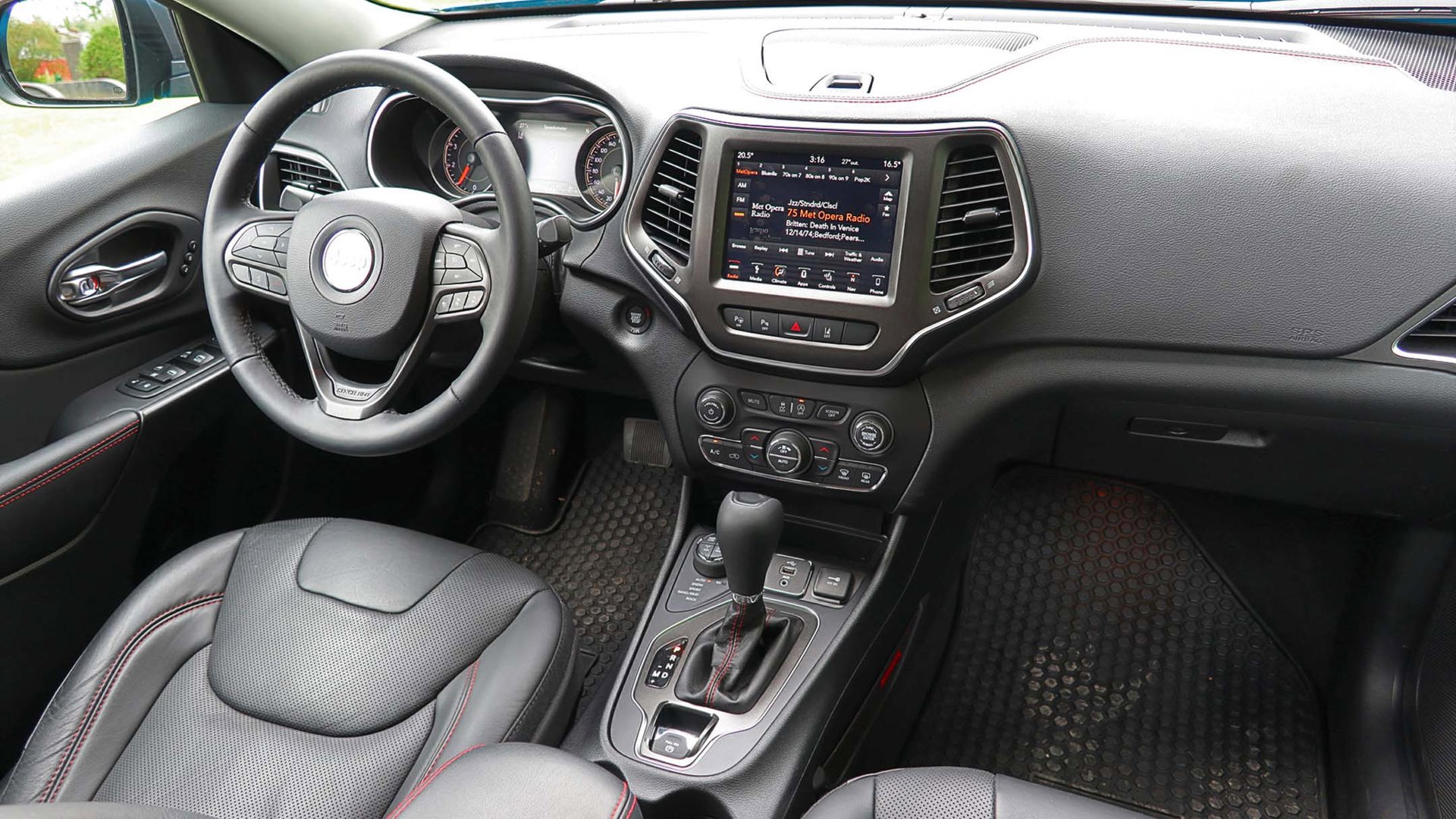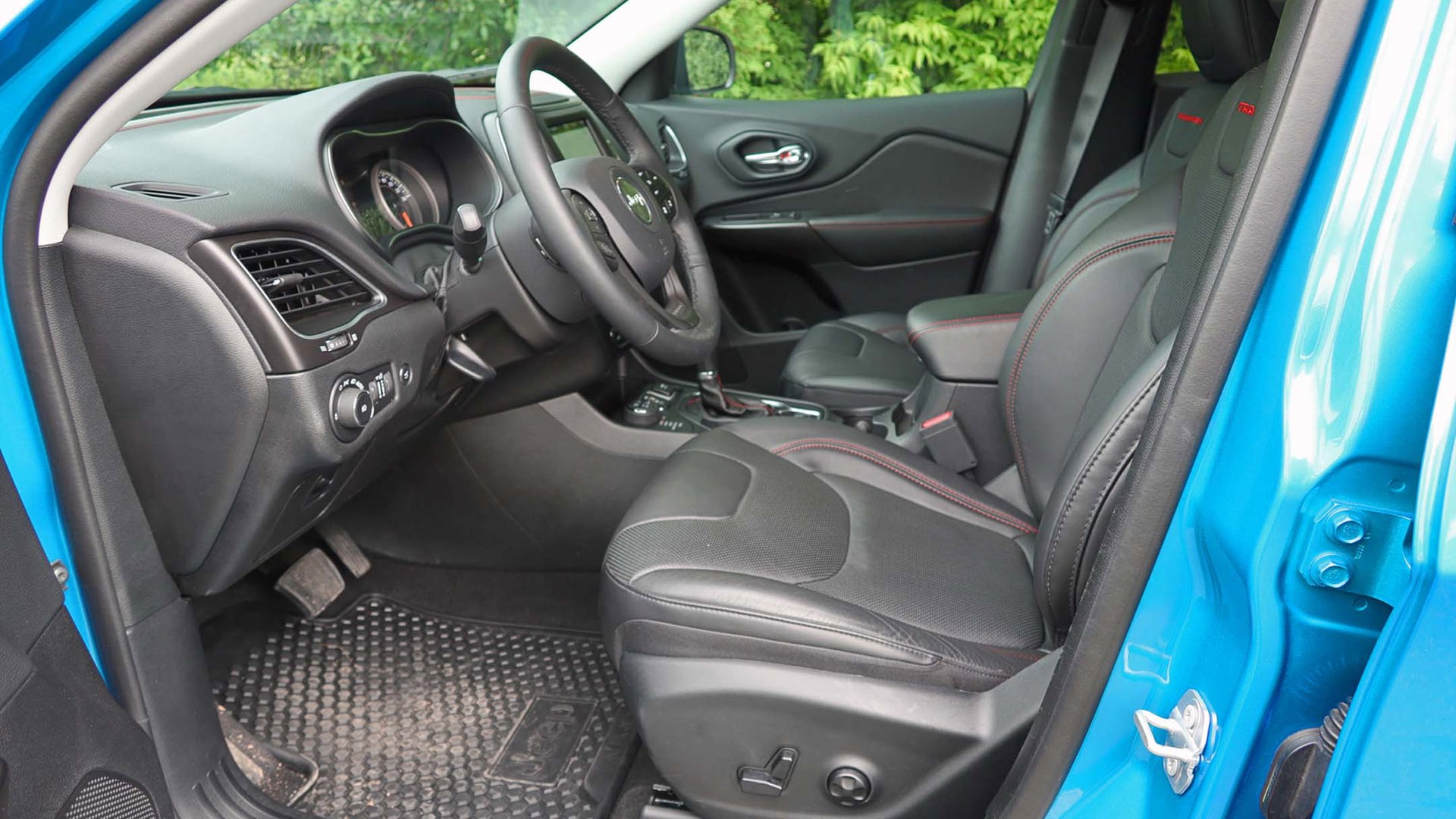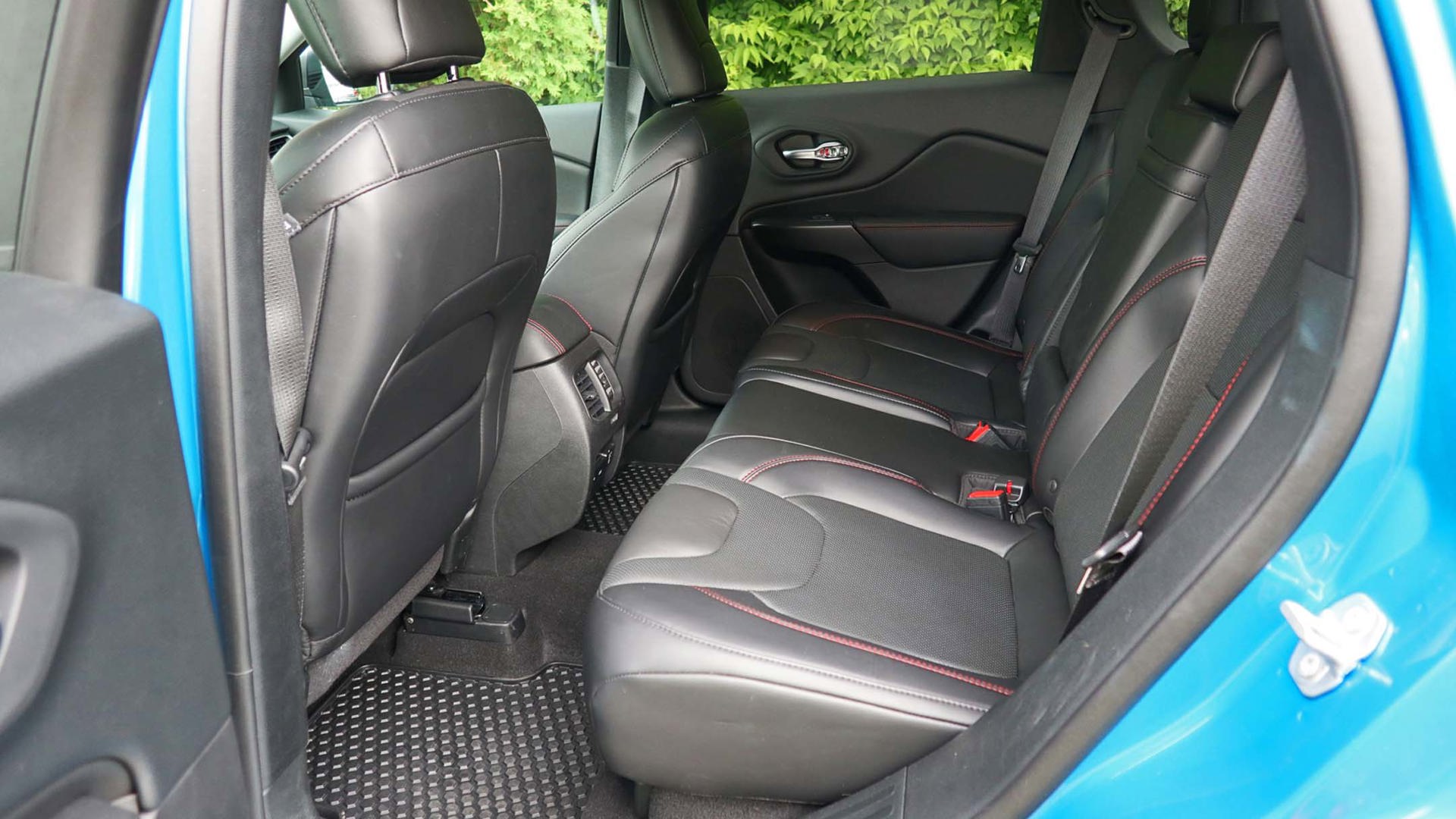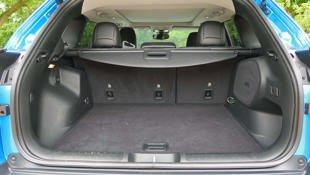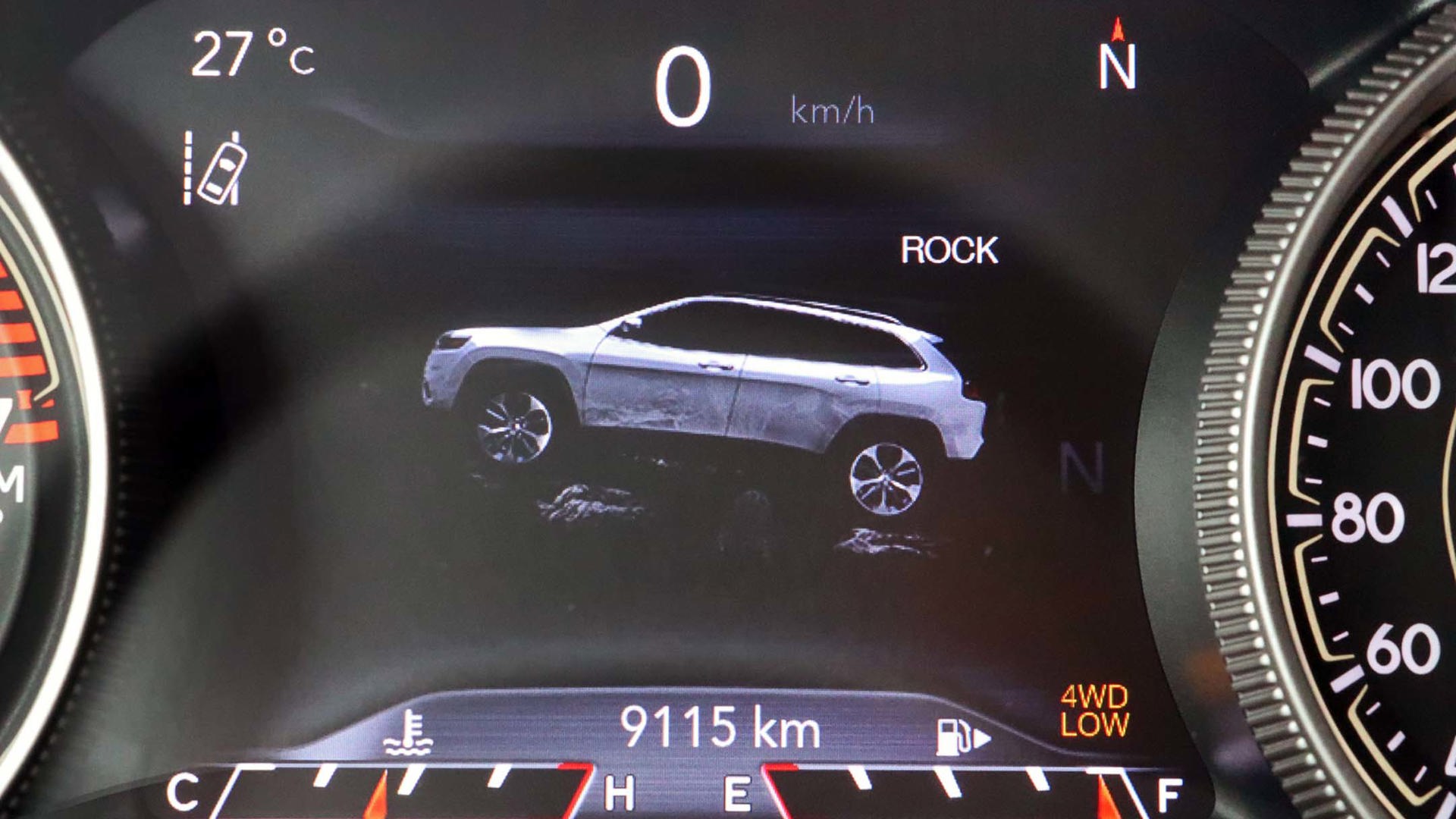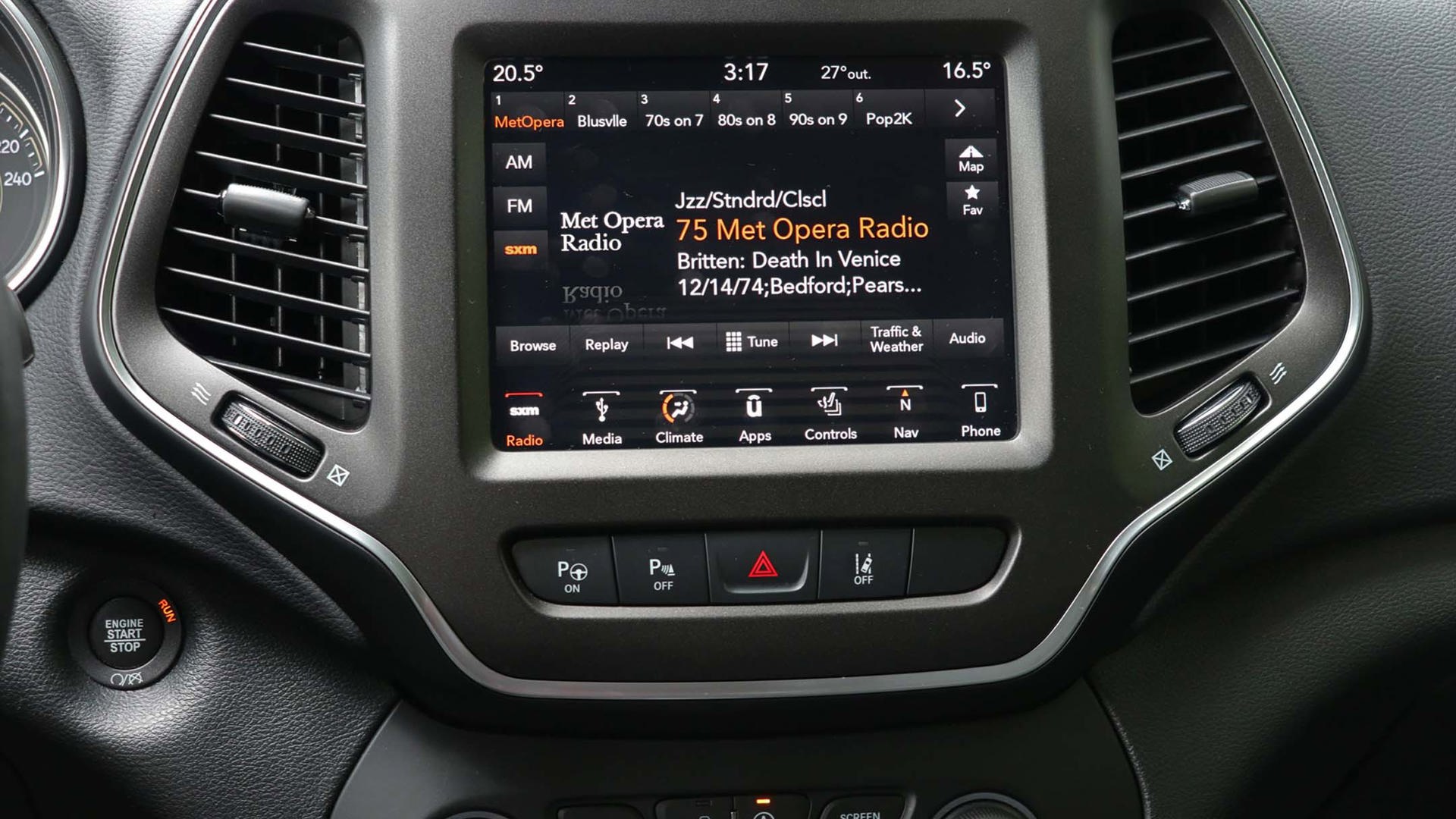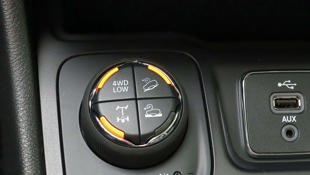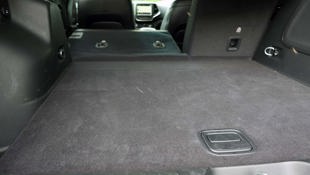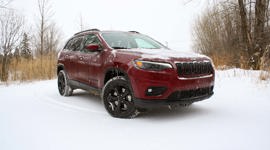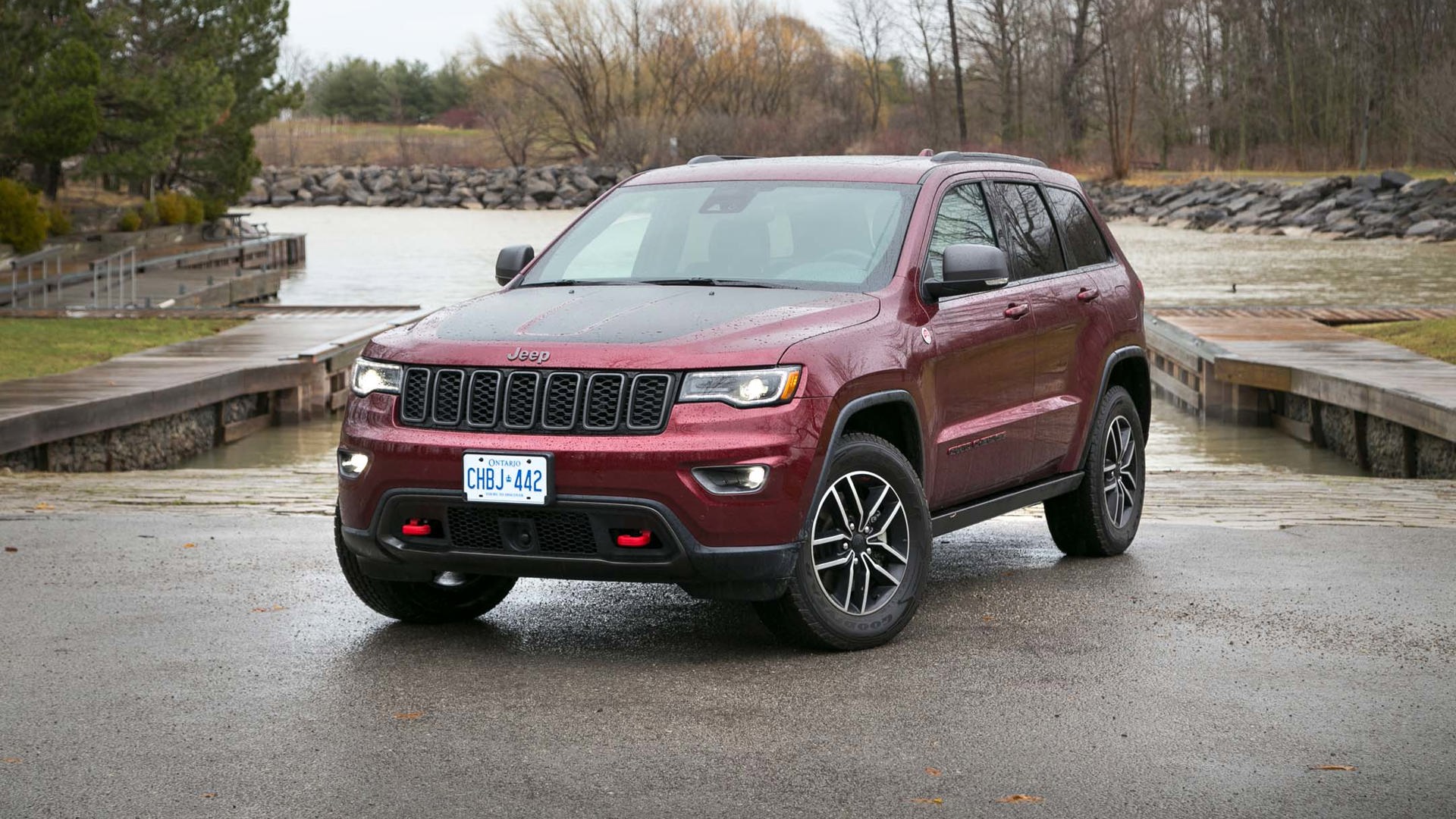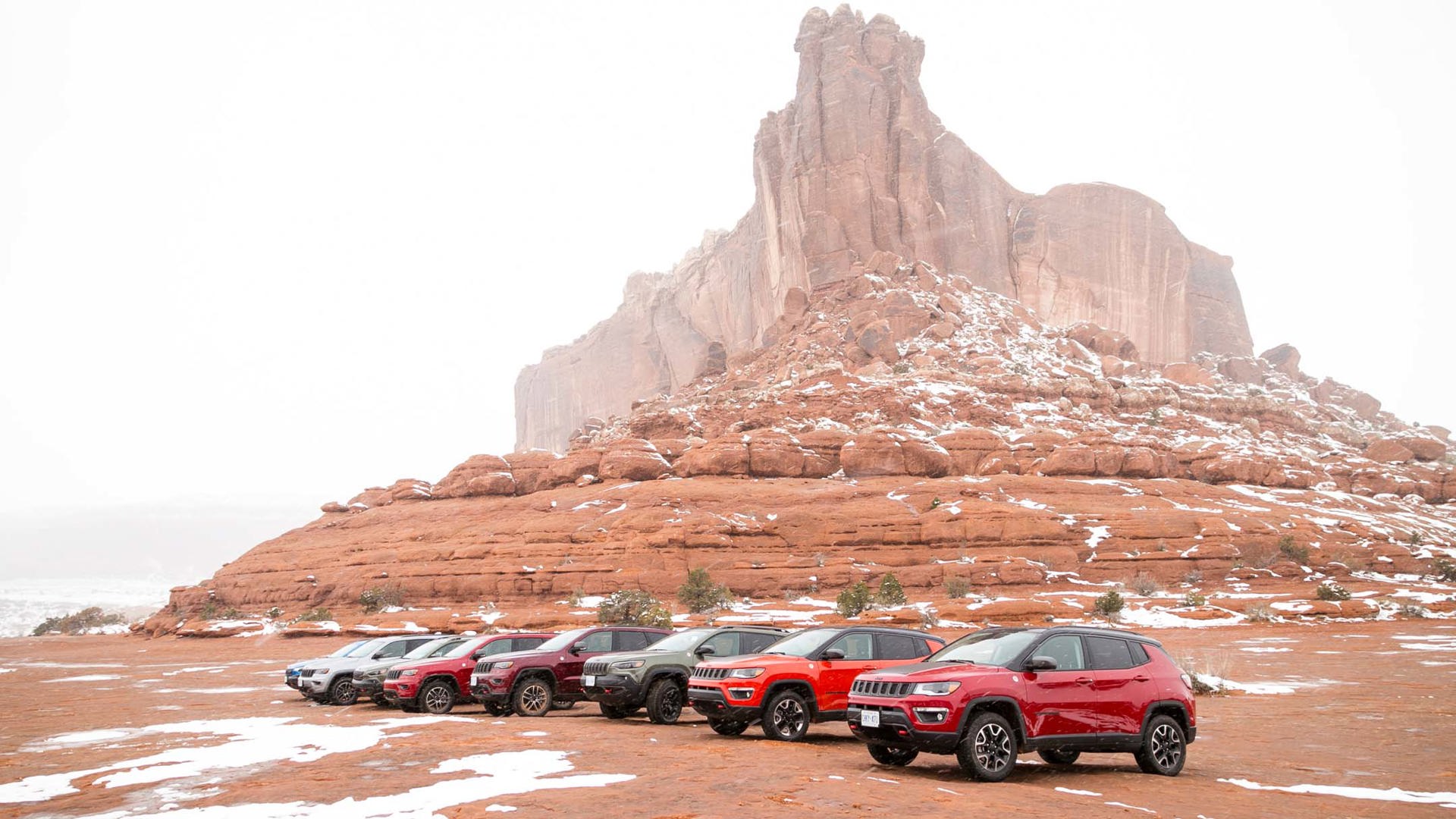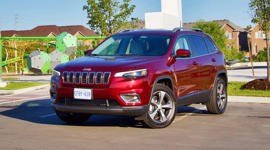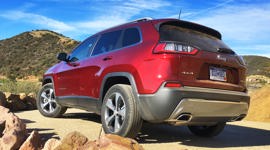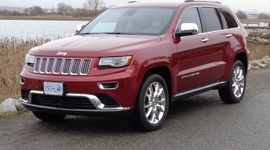 AutoTrader SCORE
AutoTrader SCORE
-
STYLING6/10
-
Safety8/10
-
PRACTICALITY6/10
-
USER-FRIENDLINESS9/10
-
FEATURES7/10
-
POWER6/10
-
COMFORT8/10
-
DRIVING FEEL8/10
-
FUEL ECONOMY8/10
-
VALUE7/10
When the Cherokee first appeared for 2014, reaction was mixed. It was a decent little crossover, but with a squinty-headlight face that only a mother could love. Now there’s a facelift for 2019, along with a new 2.0L turbocharged engine. That’s under the hood of my tester, the off-road-specialist 2019 Jeep Cherokee Trailhawk. Mine started at $38,995 but climbed to $48,035 before freight and taxes.
The Cherokee is a rare beast that’s actually fun to drive both on and off the pavement.
Styling: 6/10
The facelift is an improvement, although the Cherokee’s still not really a looker. It carries the trademark seven grille slots of a Jeep, but other than that, the styling’s pretty much crossover-generic. The red tow hooks are a Trailhawk styling cue, while the red Trail Rated badge indicates this trim level passes Jeep’s off-road standards for traction, manoeuvrability, articulation, ground clearance, and water fording. That said, while Jeeps with the badge are seriously good off the beaten path, the company will not divulge the precise benchmarks they must meet.
Safety: 8/10
The Cherokee gets a “Good” rating from the IIHS, and four out of five stars from NHTSA for crash protection. However, if you want higher-tech safety features, you must pay more for them: my tester’s blind spot monitoring, forward collision warning, emergency braking, and lane-keep assist were all part of optional packages.
The car’s tendency to look out for its occupants sometimes goes a bit overboard. When activated, lane-keeping assist requires that you keep your hands on the wheel – no doubt to discourage the rocket scientists who make headlines by setting their cruise systems and then sitting back as if they had a fully autonomous car – and will loudly beep if you’re off the steering for more than a few seconds.
But vast improvements in steering and tire technology means that, on almost all cars, you no longer have to saw the wheel back and forth to stay in a straight line. Add in that I keep a light touch on my steering wheel on the highway, and the damn thing thought I wasn’t holding it and constantly beeped at me. I finally turned the system off in frustration.
Practicality: 6/10
The Cherokee has the inherent practicality of a hatchback – easy cargo loading and fold-down seats for extra space, plus mine was optioned with a power liftgate – but it is a narrow vehicle, which limits its capability. The shorter-but-wider Honda CR-V, for example, offers 1,110 litres of cargo space with its rear seats up, versus 730 litres in the Cherokee.
The Cherokee’s cargo floor can be set at two different heights, although the maximum is still only 781 litres of space. And while very few people are comfortable in the middle seat of any compact sport-ute, the narrow Cherokee doles more centre-chair punishment than most. Finally, small-item storage is at a premium up front. There’s a covered cubby on top of the dash, but its lock takes up a fair chunk of the space inside. Beyond the console box and glovebox, you only get a small cubby under the centre stack, and much-too-tiny door pockets.
User Friendliness: 9/10
Simple is always good, and that’s what the Cherokee is. Almost everything is handled with large buttons and dials (the exceptions being vent mode, heated steering wheel, and the heated and ventilated seats, which must be done through the centre screen). The off-road settings are equally easy, done through a dial which you spin for the drive modes, or by pressing the buttons inside it.
The Uconnect infotainment system remains one of the industry’s best. It’s easy to use, with large icons and intuitive menus and functions. My tester was optioned with an upgrade that added navigation and SiriusXM Guardian connected services, although it’s a one-year subscription that’ll need to be renewed.
Features: 7/10
The Trailhawk is fairly high up the trim ladder, and its features list reflects that. Along with items from some of the lower trim levels, including heated seats, tire pressure monitoring sensor with fill indicator, automatic headlamps, and Apple CarPlay and Android Auto, it also has unique upholstery with red stitching, all-season floor mats, LED headlamps, skid plates, and hill ascent and descent control (think low-speed, off-road cruise control).
However, if you want to outfit your Trailhawk to my tester’s configuration, you’ll have to spend many extra bucks. Mine had such items as a power liftgate, dual-zone automatic climate control, power-adjustable leather heated-and-ventilated driver and passenger seats, auto-dimming mirror, tonneau cover, push-button start, heated steering wheel, garage door opener, and wiper de-icer, but they were bundled into an option package for $2,995.
Power: 6/10
The Trailhawk comes stock with a 3.2L V6 that makes 271 horsepower and 239 lb-ft of torque (lower trim levels start with a 2.4L four-cylinder making 180 horsepower). The new-for-2019 option in my tester is a turbocharged 2.0L four-cylinder churning out 270 horsepower and 295 lb-ft of torque. All engines are mated to a nine-speed automatic transmission.
All other trim levels are available in two- or four-wheel drive, but the off-road-specific Trailhawk comes only in 4x4. It uses the heaviest-duty of the Cherokee’s systems, known as Active Drive Lock, and includes automatic full-time four-wheel and a mechanical locking differential. The terrain response can be dialled in for snow, sport, sand and mud, or rock.
The turbo 2.0L adds $995 to the price, but frankly, I wouldn’t bother paying it. Despite its considerable boost in torque over the V6, it seldom feels powerful, and there can be a noticeable lag after you put your foot down. Fuel efficiency is the name of the game here, and the transmission tries its best to keep it in the higher gears whenever possible. It’s especially irritating because it’s not consistent: sometimes engine and transmission work together for smooth and even peppy performance, and then you hit the throttle and everything bogs down.
The turbo gains an improvement on fuel over the V6, but I’d far rather take the V6 and spend the cost difference on gas (and while the 2.0L will run on regular-grade, premium is recommended). The bigger, naturally aspirated engine is more enjoyable to drive, and has fewer moving parts than the turbo engine, which I’ve always preferred if I’m going to be keeping a vehicle for a long time.
Comfort: 8/10
Despite its relatively narrow cabin, the Cherokee handles itself well in the comfort department. The seats are supportive, with a good driving position and not-too-tight foot wells. There’s enough sculpting in the back chairs to handle rear-passenger spines, although there may be some complaints about knee space if the front seats are pushed all the way back.
The cabin is quiet and the ride is smooth and well-balanced. If you’re primarily driving your Jeep on the road, but want something that can tackle the tough trails when the opportunity comes up, the Cherokee might be a better choice than the Wrangler, which can be noisy and choppy on paved roads.
Driving Feel: 8/10
The Cherokee is a rare beast that’s actually fun to drive both on and off the pavement. On asphalt, it’s far more agile than you’d expect, able to negotiate sharp turns with smooth precision. There isn’t a great deal of steering feel, but the response is quick and accurate.
Off-road, the Cherokee is the real deal. Virtually any sport-ute will get you down the average cottage trail, but when its system is set for the tough stuff, the Trailhawk delivers. I’ve driven it on very challenging courses and it had no problem getting through. The Wrangler is tougher overall, with more ground clearance and heavy-duty axles, but the Cherokee won’t embarrass you on the trail, and the dial-it-in simplicity of its off-road settings will appeal to those who don’t want or need the full-blown Wrangler Rubicon experience.
Fuel Economy: 8/10
The 2.0L turbo has a published rate of 10.6 L/100 km in combined city and highway driving, an improvement over the 11.6 L/100 km that the 3.2L V6 racks up in official testing. However, many of its all-wheel compact sport-ute competitors don’t break the double-digit 10-litre mark in testing.
That said, over the course of my week with the Trailhawk I did even better, coming in at 9.5 L/100 km.
Value: 7/10
The Cherokee runs from $32,240 for the base Sport, to $45,840 for the Overland. At $38,995, the Trailhawk offers up a lot of off-road goodness for the price, but to get it equipped as mine was, the final figure of $48,035 felt high.
As mentioned, I wouldn’t pay $995 for the turbo engine; I’d stick with the V6 and save myself the cash. There were also some pricey add-ons such as the dual-pane sunroof at $1,595; an extra $920 for the upgraded infotainment system; and a couple of items in the $2,995 Preferred Package, such as the tonneau cover, push-button start, heated seats, and wiper de-icer are the sort that many buyers expect to be thrown in once their vehicle starts at close to forty grand.
Conclusion
It’s all in how you outfit it, but the Cherokee Trailhawk is a decent-driving machine that takes paved roads with smooth confidence, but then turns into Wrangler Lite for those who want very capable off-road ability without committing to that rougher-riding model. If the compact sport-ute competition doesn’t take you everywhere you want to go, definitely give this one a try.
| Engine Displacement | 2.0L |
|---|---|
| Engine Cylinders | I4 |
| Peak Horsepower | 270 hp @ 5,250 rpm |
| Peak Torque | 295 lb-ft @ 3,000 rpm |
| Fuel Economy | 11.8/9.2/10.6 L/100 km cty/hwy/cmb |
| Cargo Space | 730 / 1,549 L seats down |
| Model Tested | 2019 Cherokee Trailhawk L Plus 4x4 |
| Base Price | $38,995 |
| A/C Tax | $100 |
| Destination Fee | $1,895 |
| Price as Tested | $50,030 |
|
Optional Equipment
$9,040 – Hydro Blue Pearl paint $100; Preferred Package (hands-free power liftgate, auto-dimming mirror, Nappa leather heated and ventilated power-adjustable front seats, auxiliary switch bank module, tonneau cover, proximity key with pushbutton start, dual-zone automatic climate control, security alarm, wiper de-icer, heated steering wheel, garage door opener) $2,995; Safety Tec Group (blind spot monitoring, rear cross-traffic detection, and rear park assist) $895; Technology Group (parallel and perpendicular park assist, adaptive cruise control with stop and go, forward collision warning with braking, rain-sensing wipers, lane-keep assist, and automatic high-beam headlamps) $995; Trailer Tow Group $595; 2.0L turbocharged engine with acoustic windshield and active noise control $995; Dual-pane panoramic sunroof $1,595; Nine speakers with subwoofer $450; Uconnect 4C with navigation $920; 17-inch black aluminum wheels $500; Trailhawk Elite Package credit against options -$1,000
|
|
